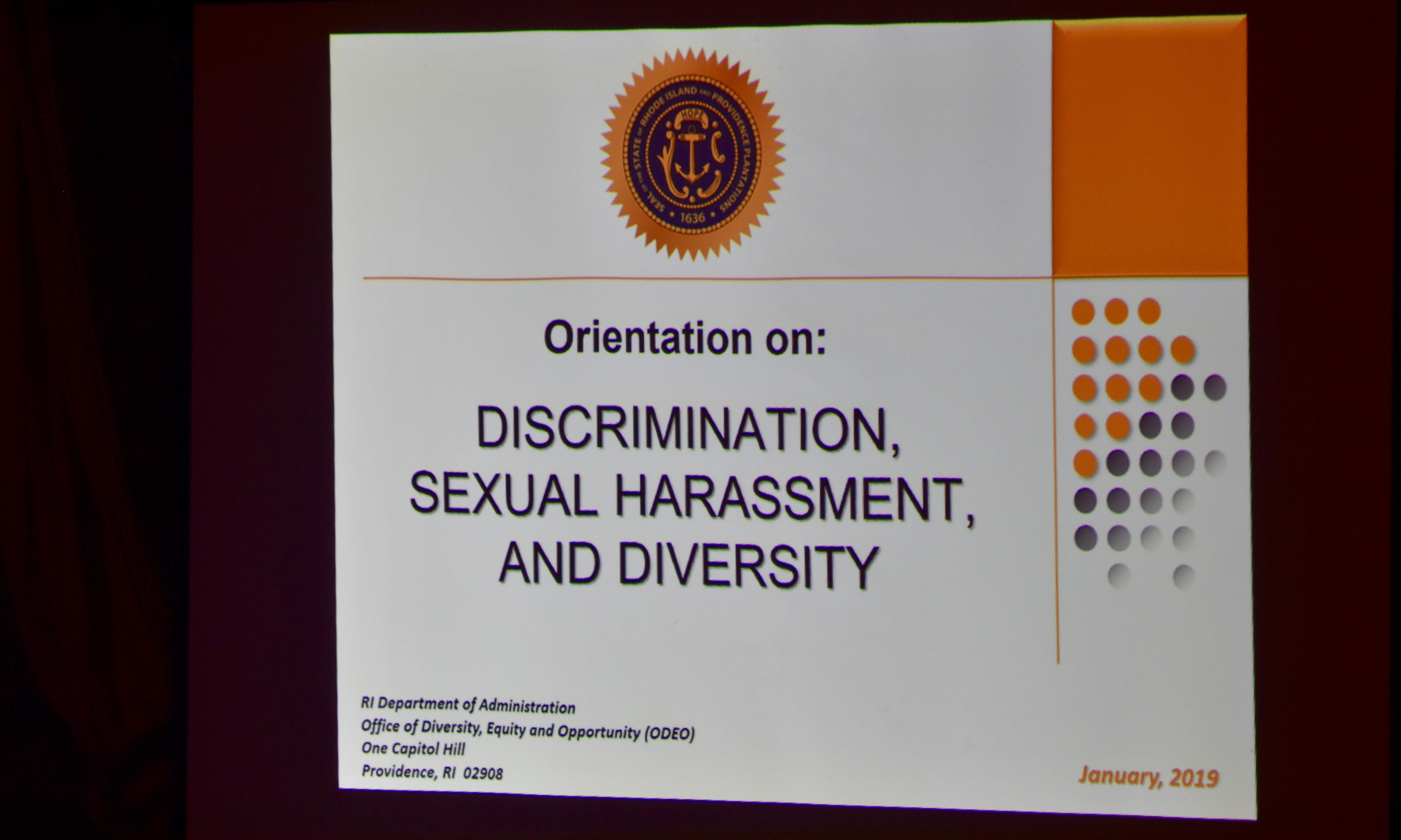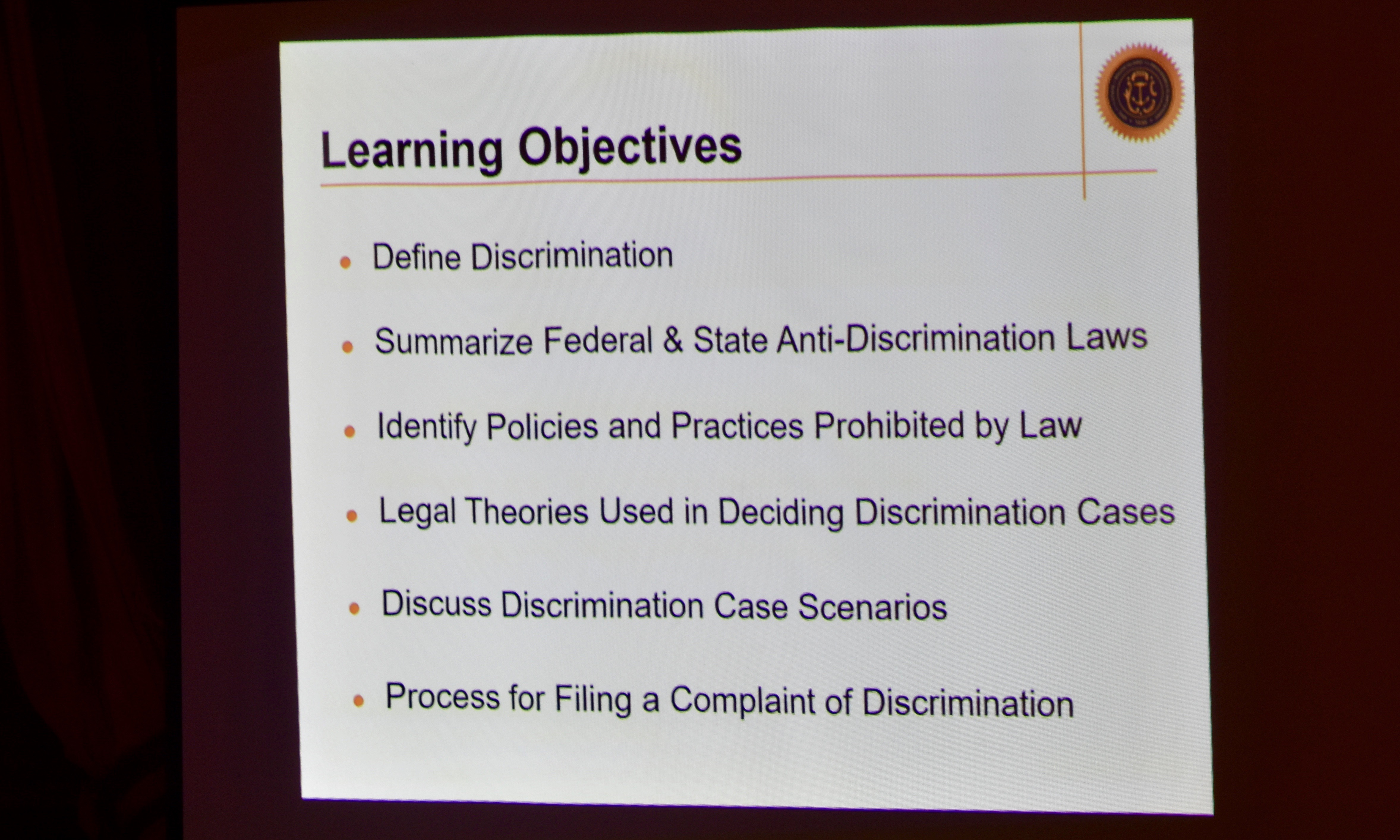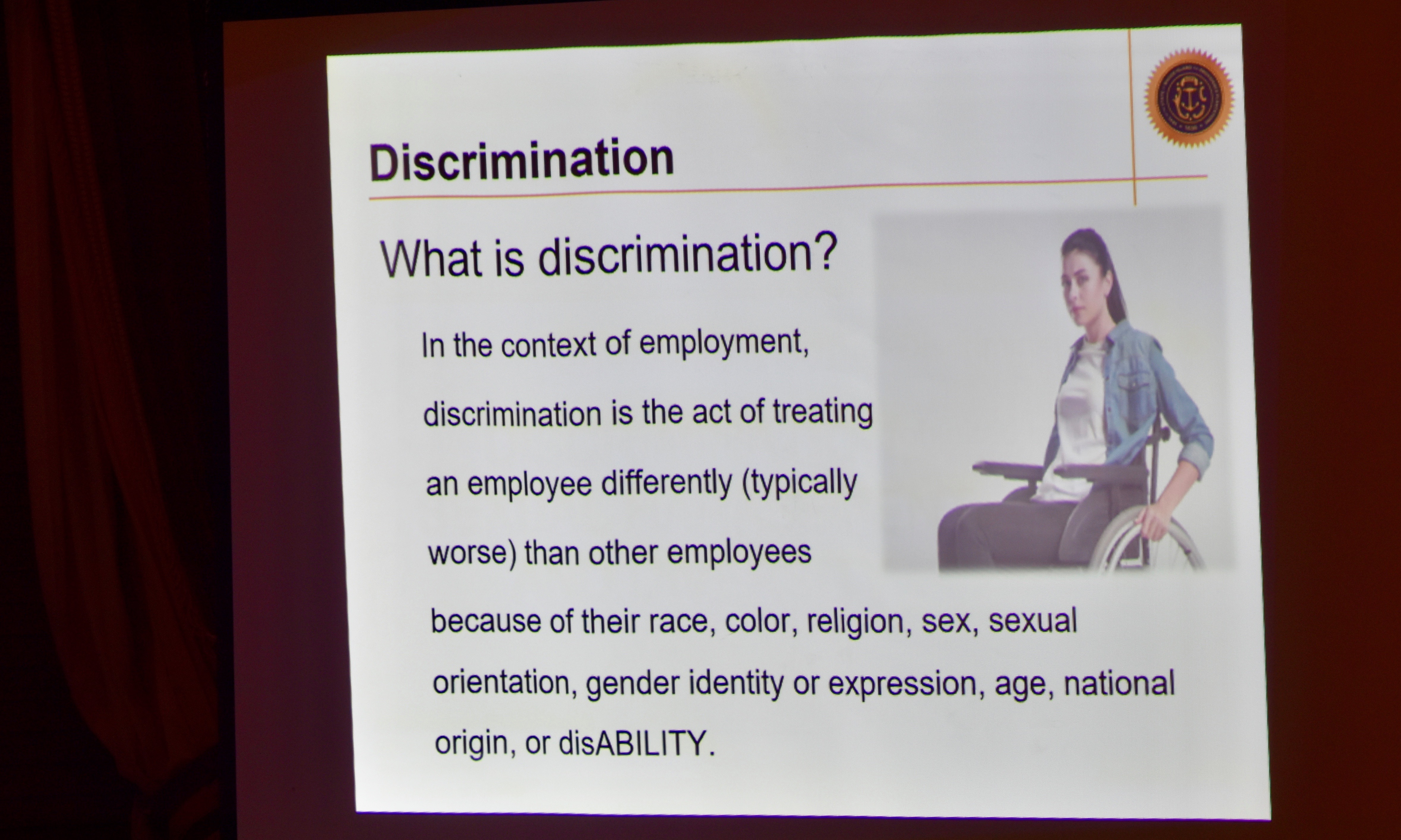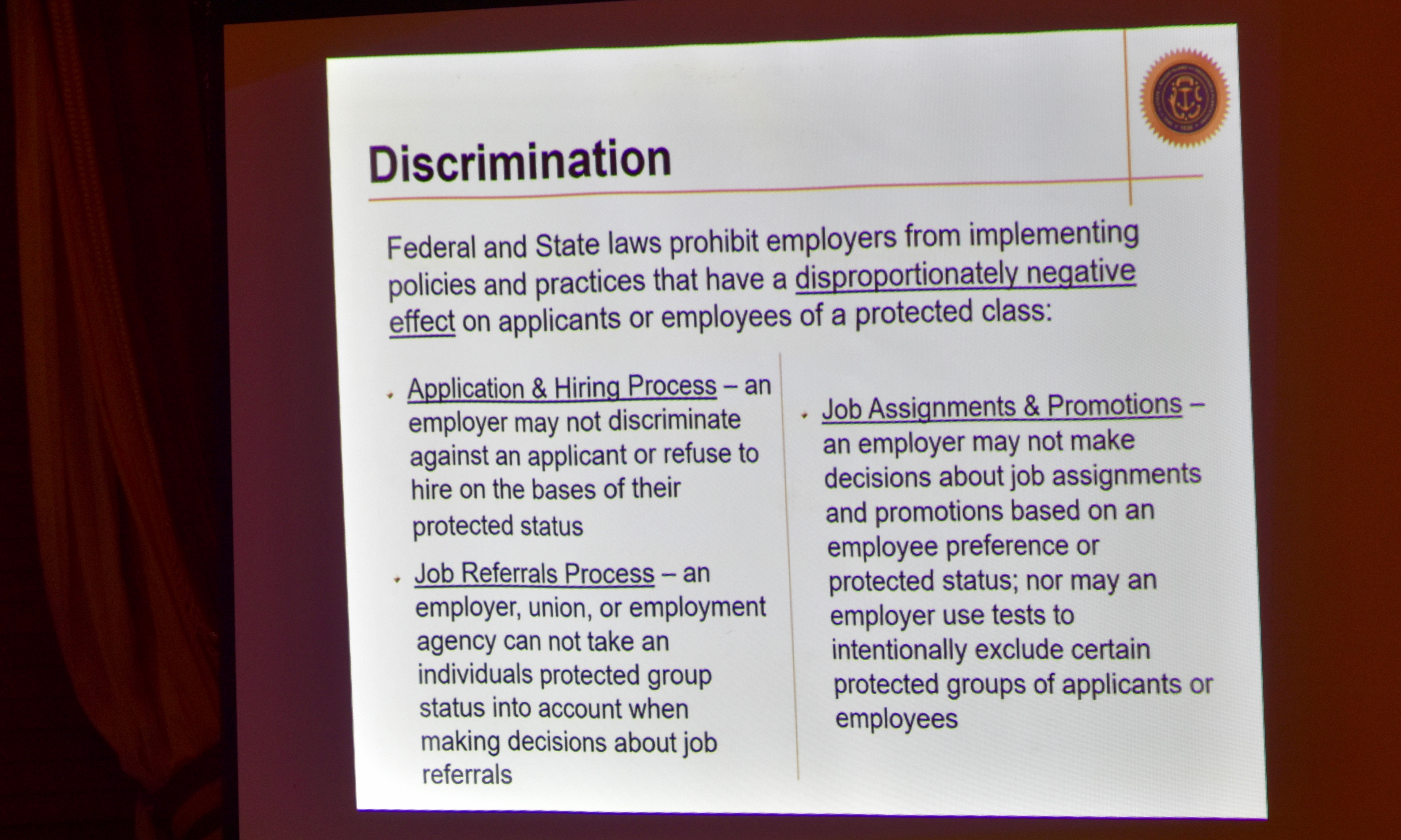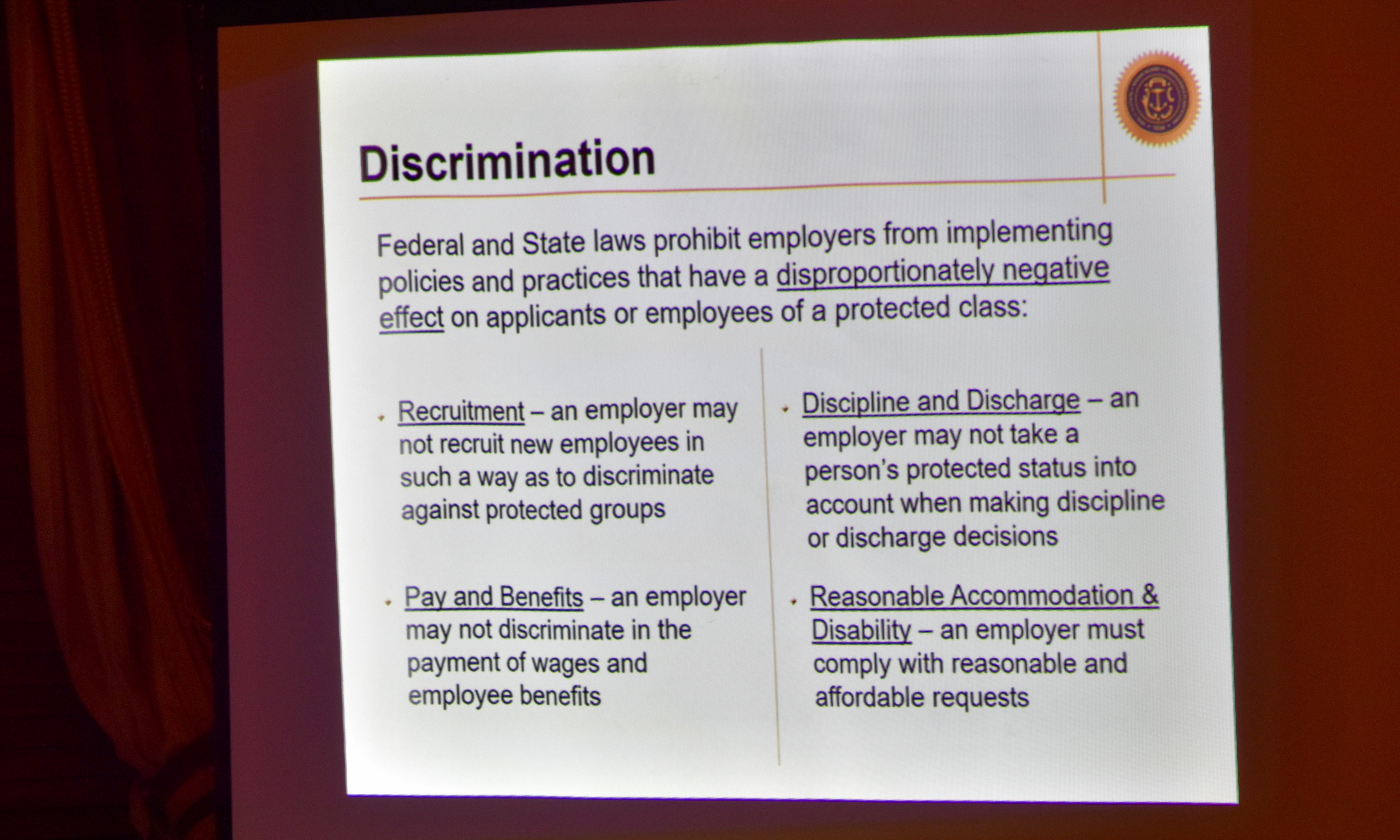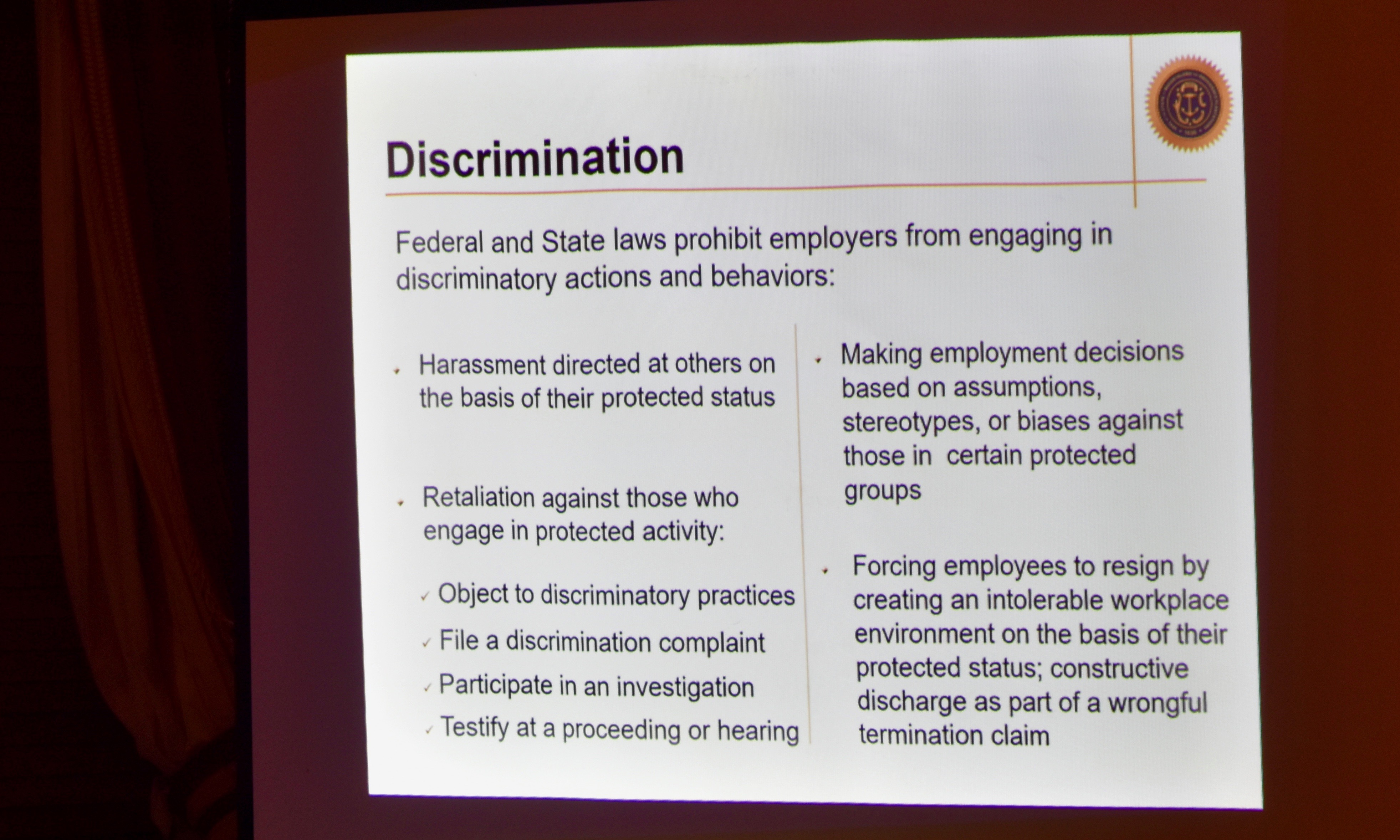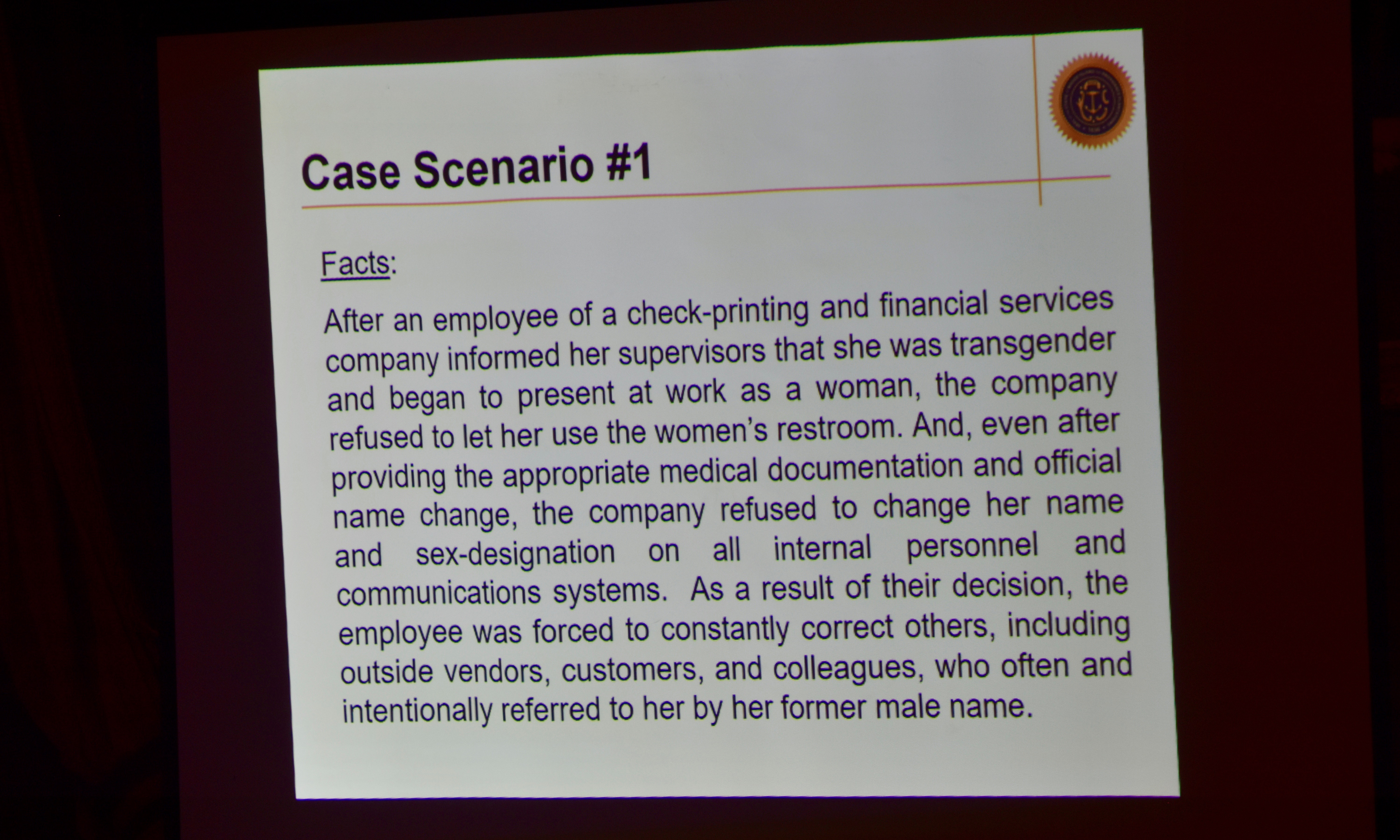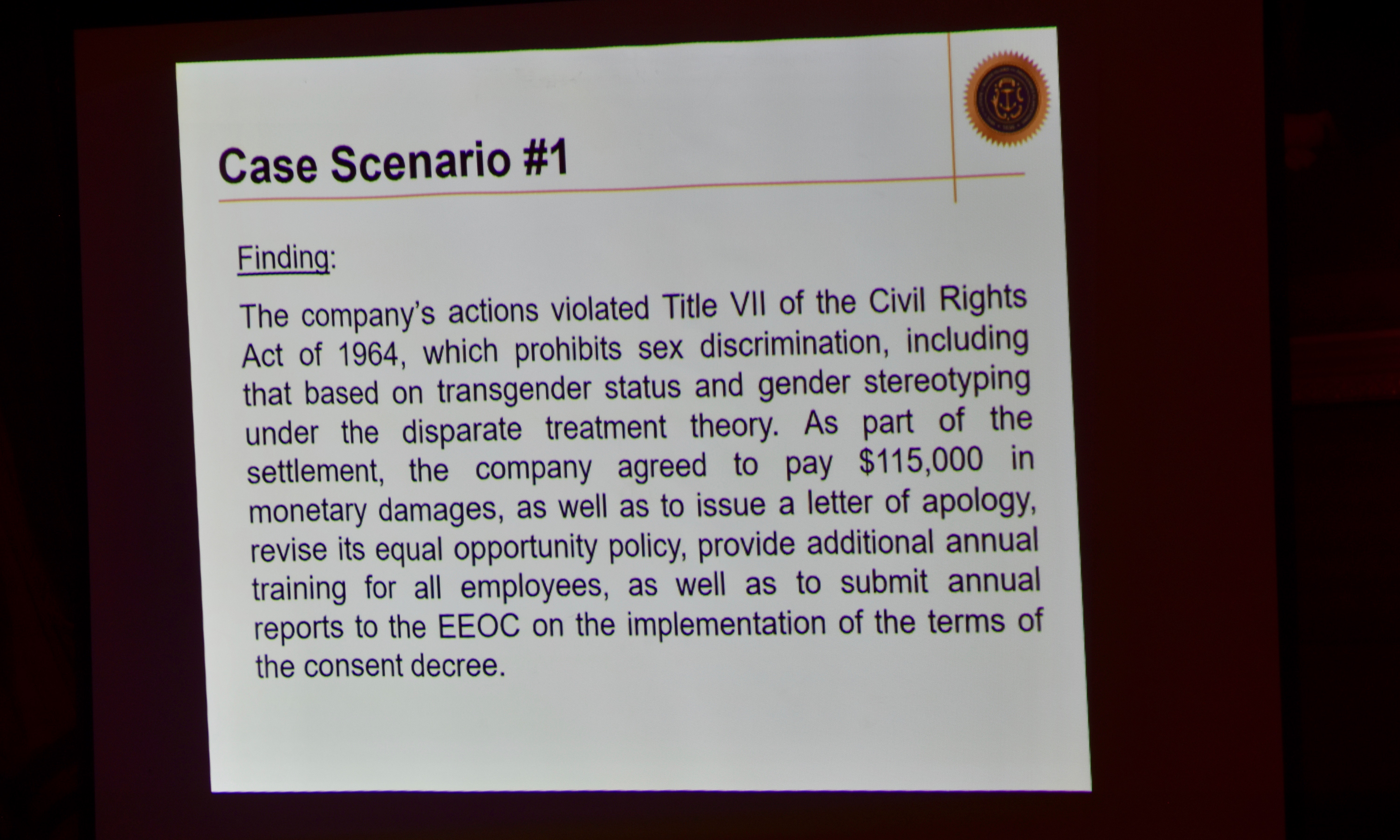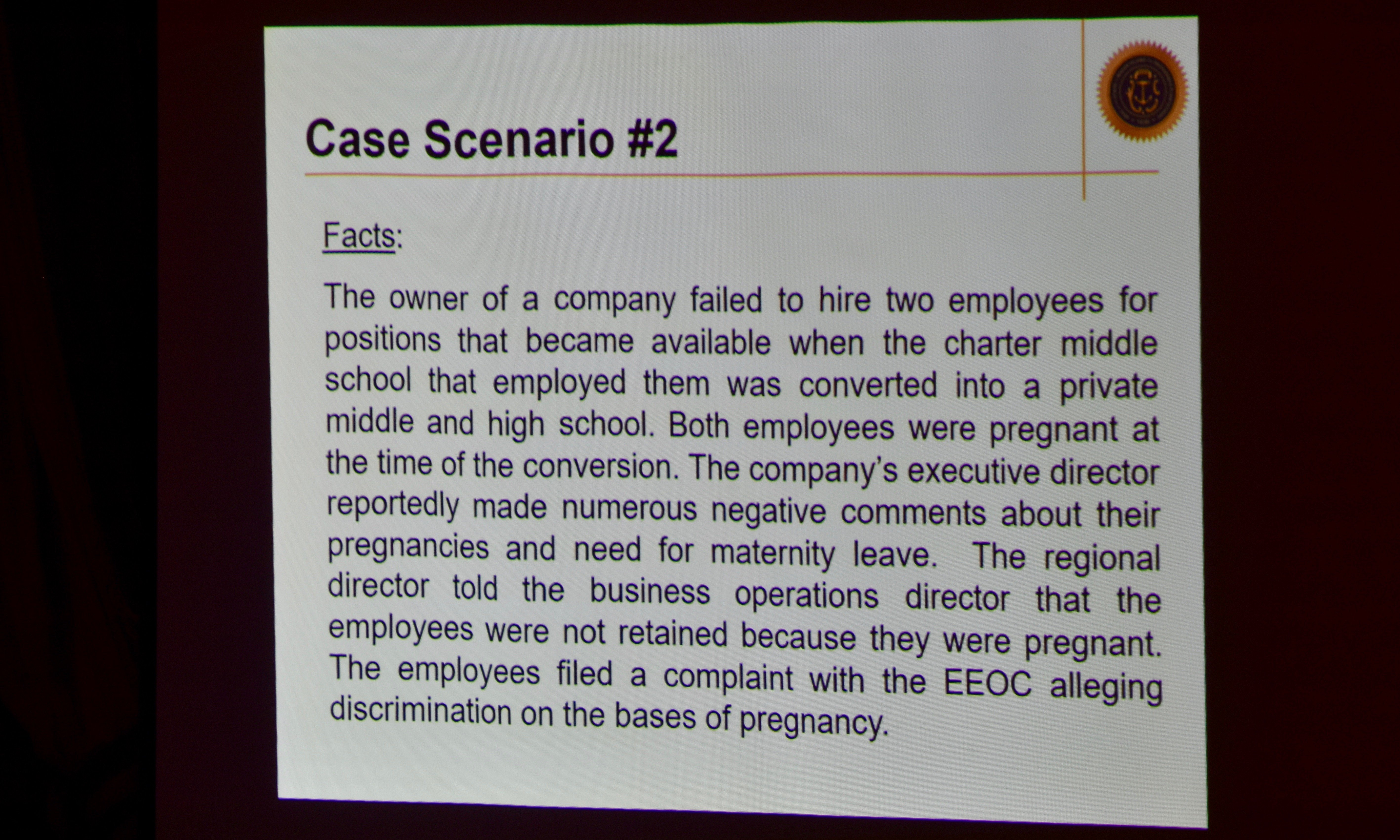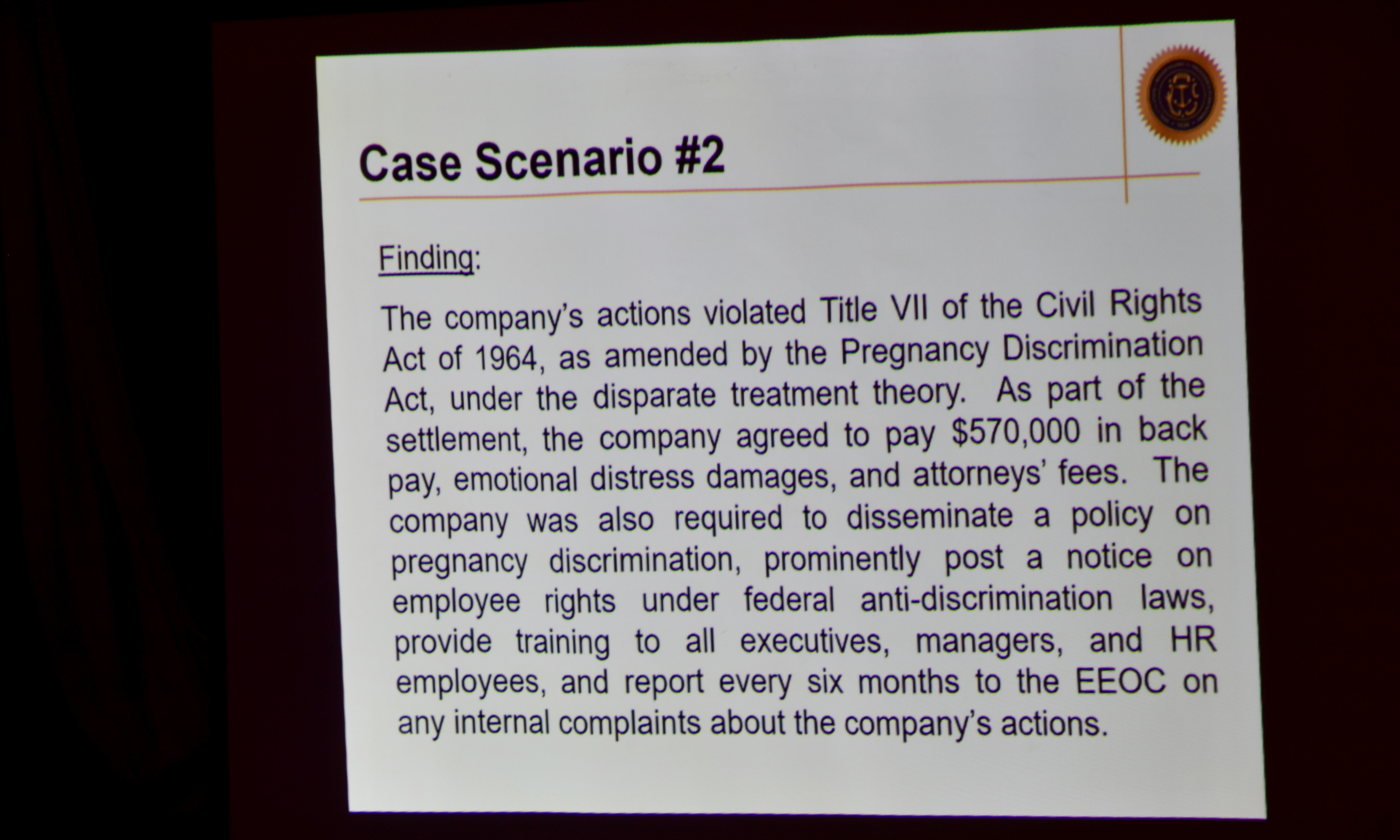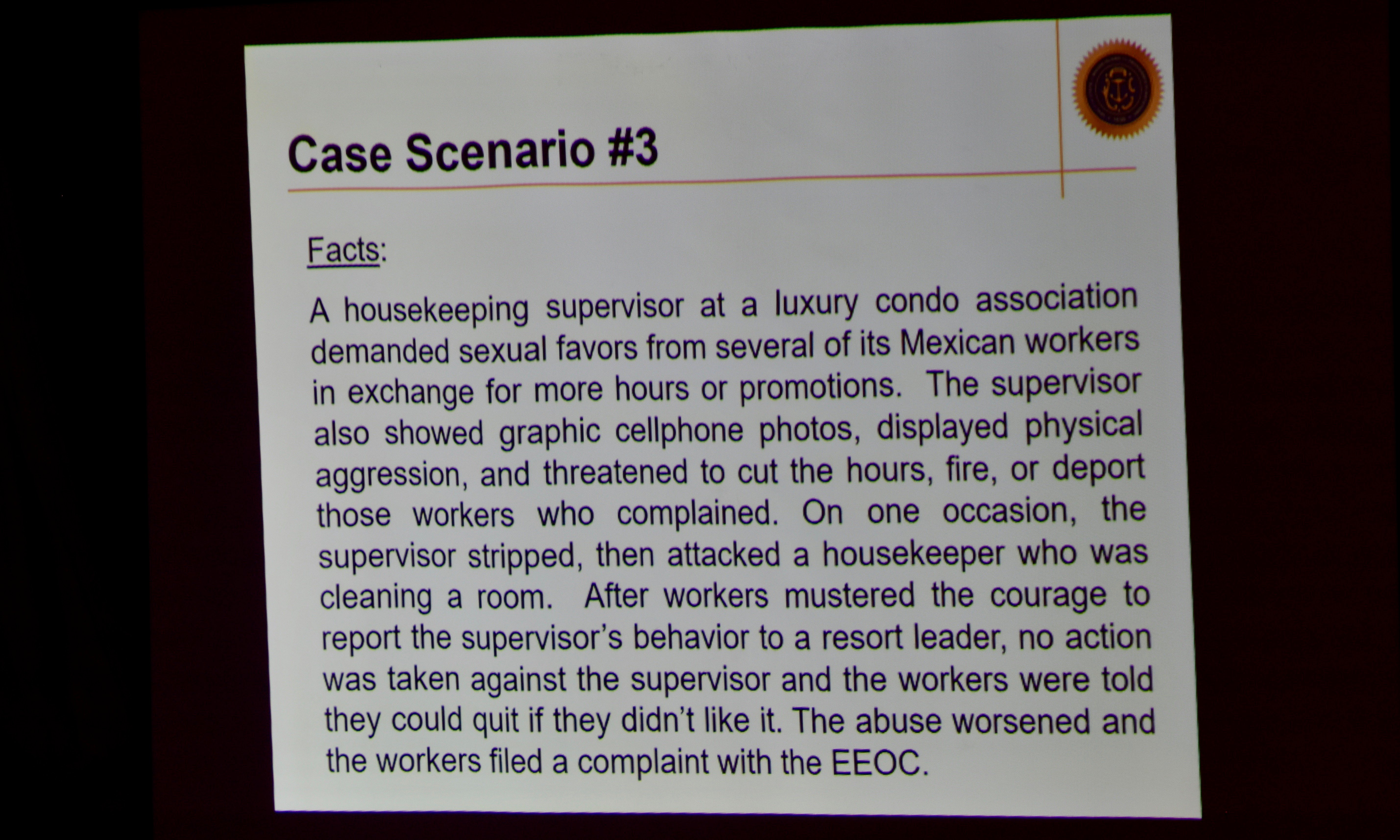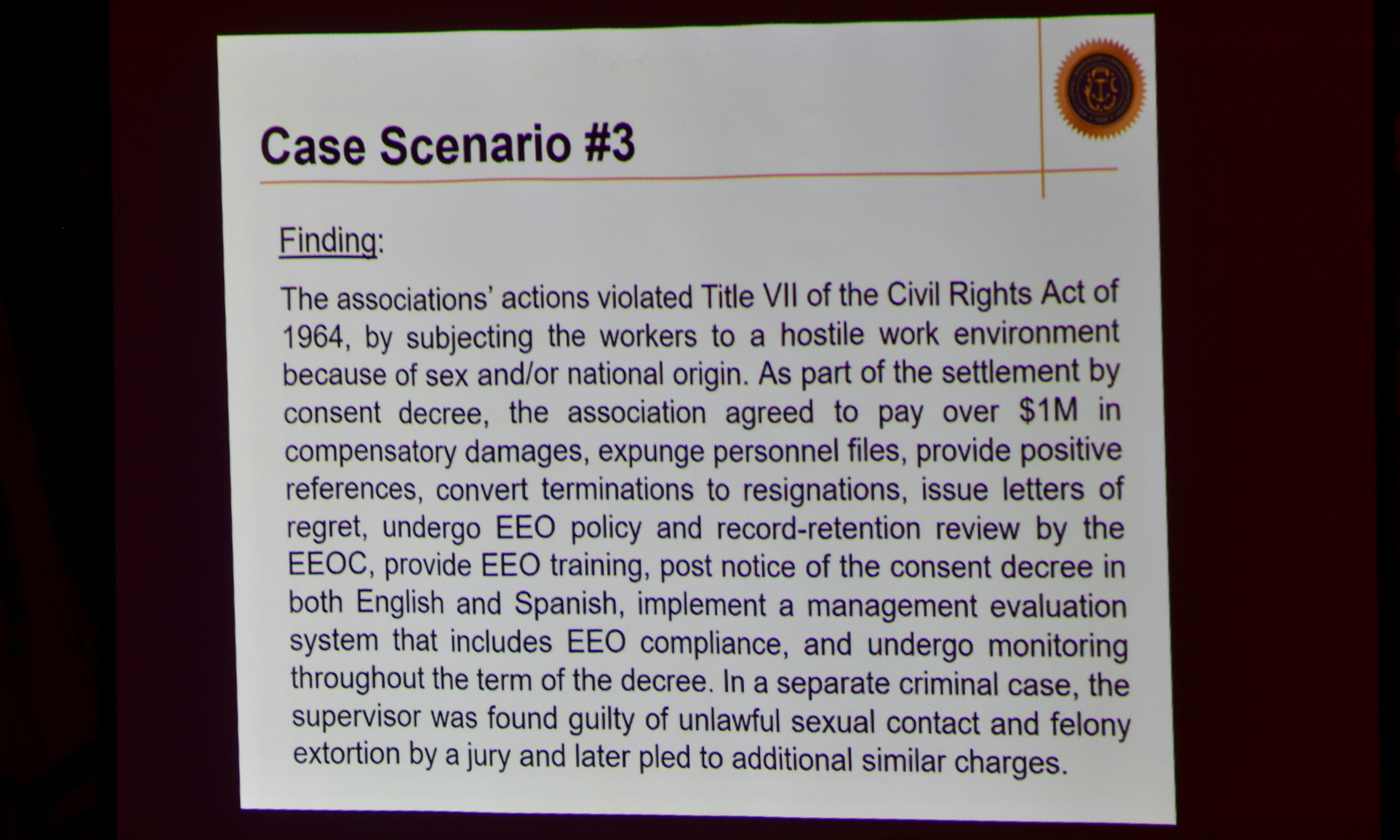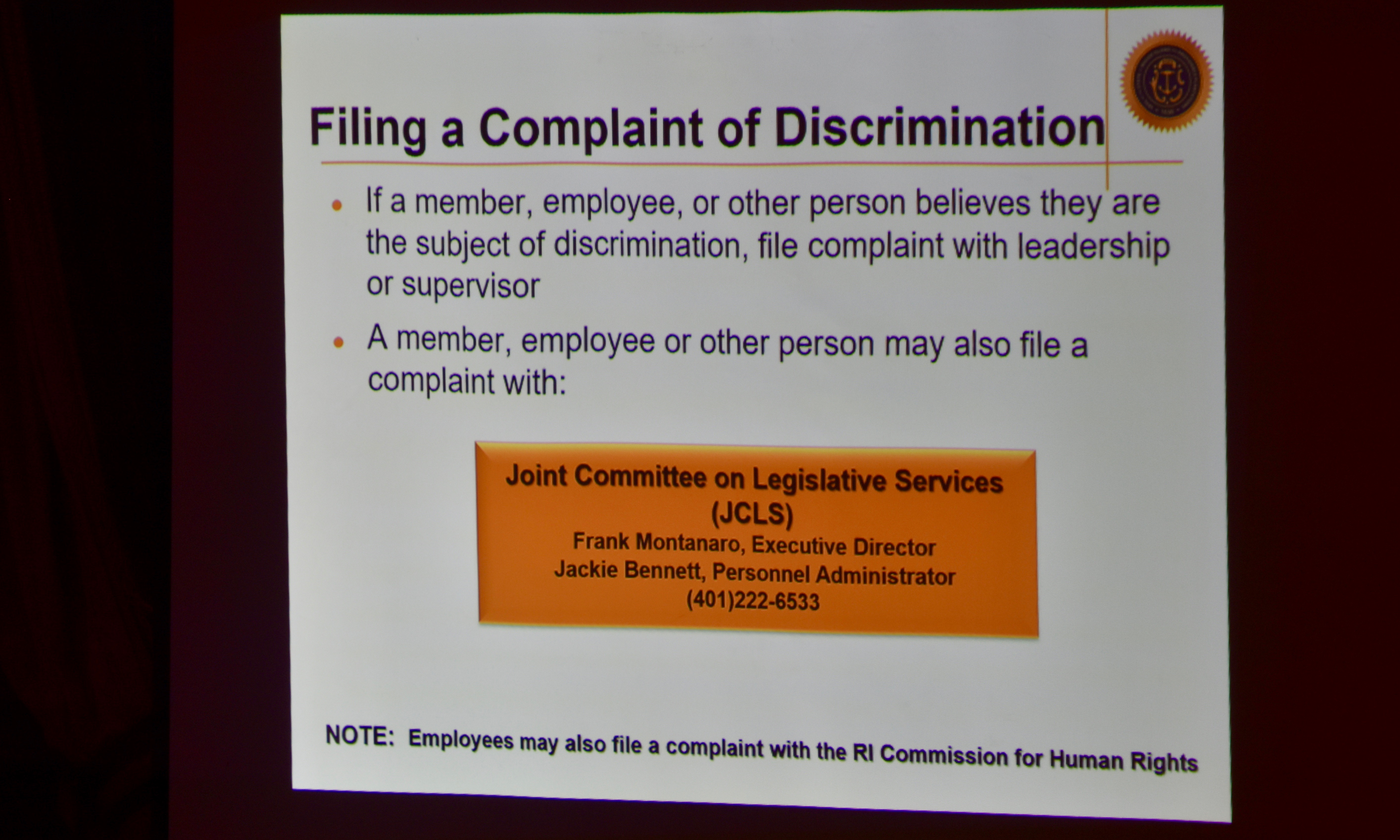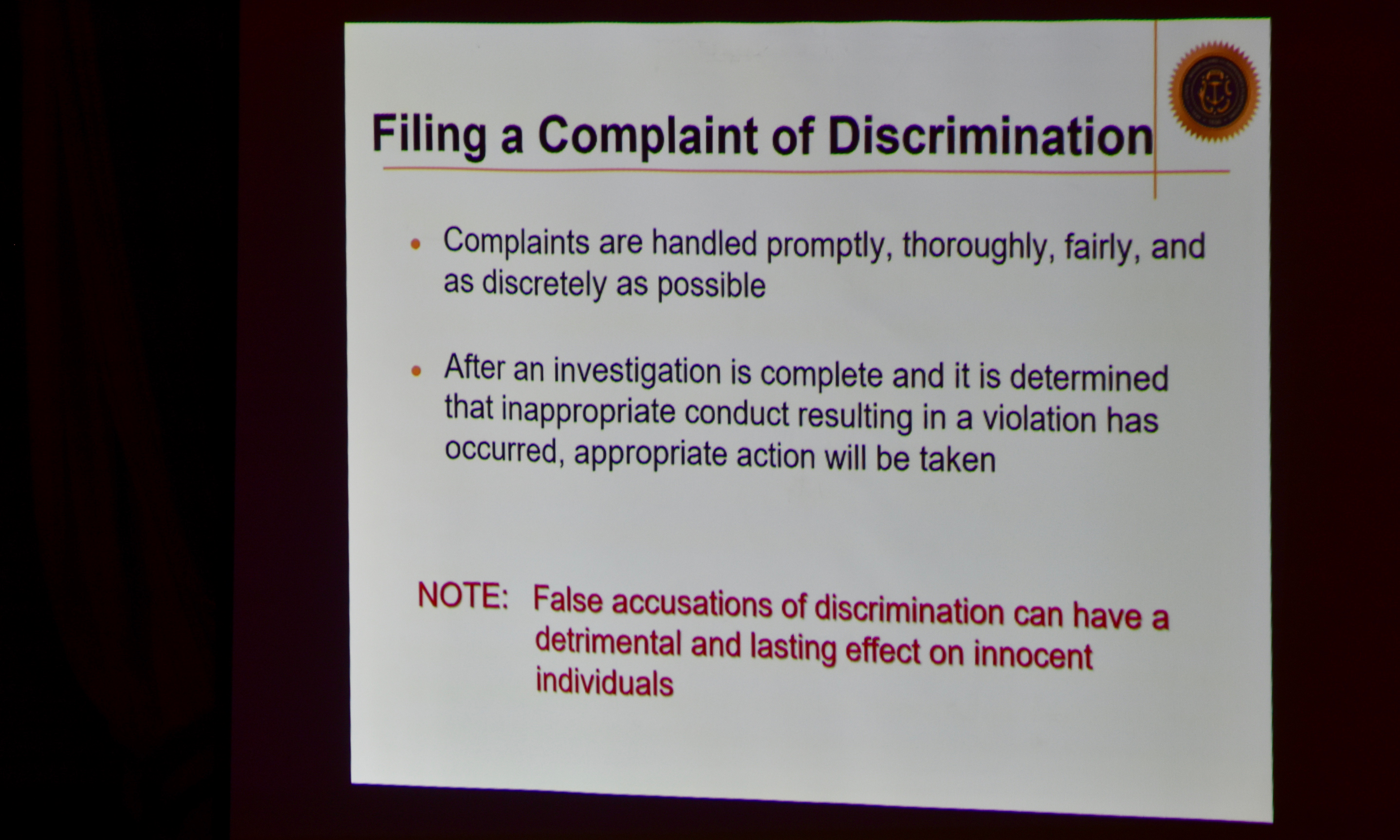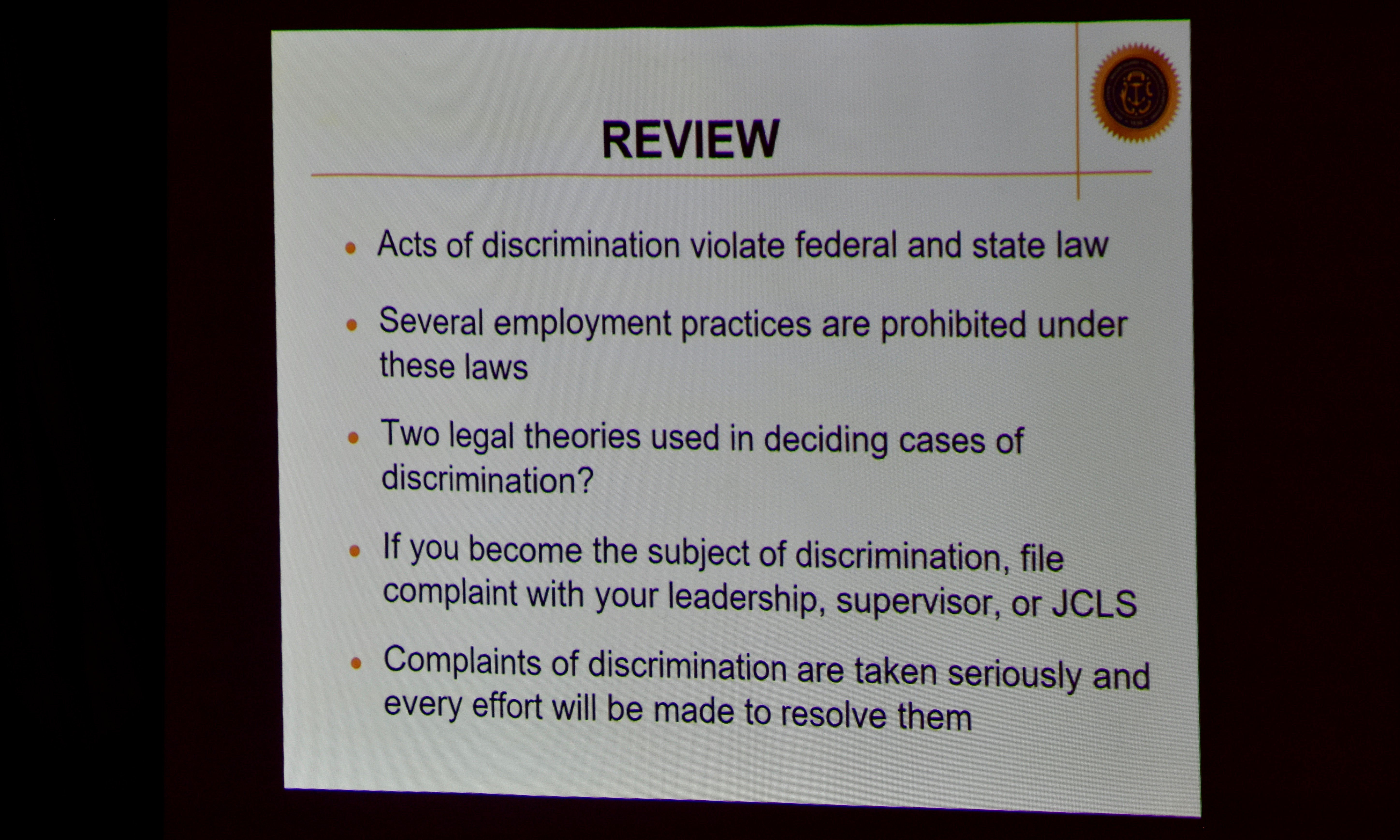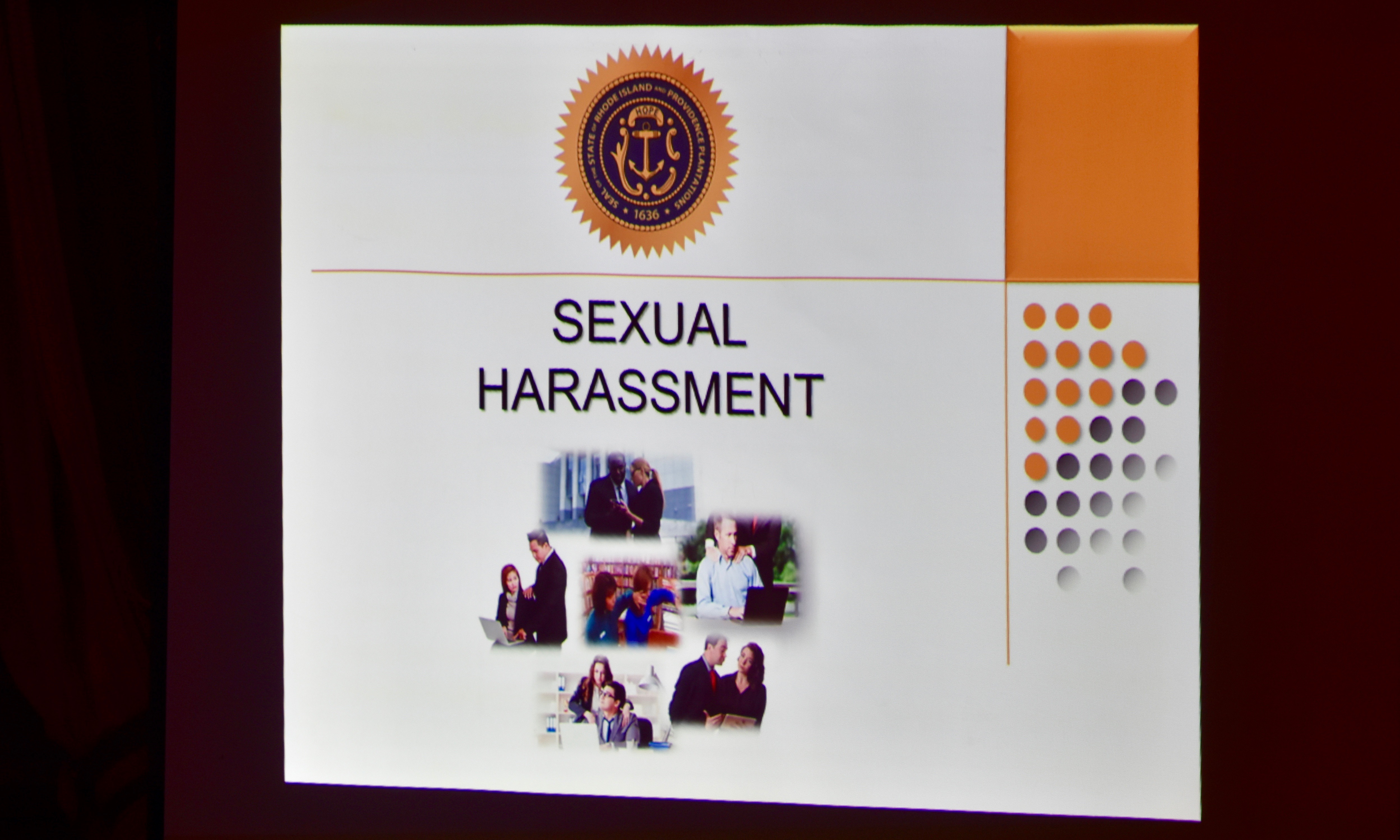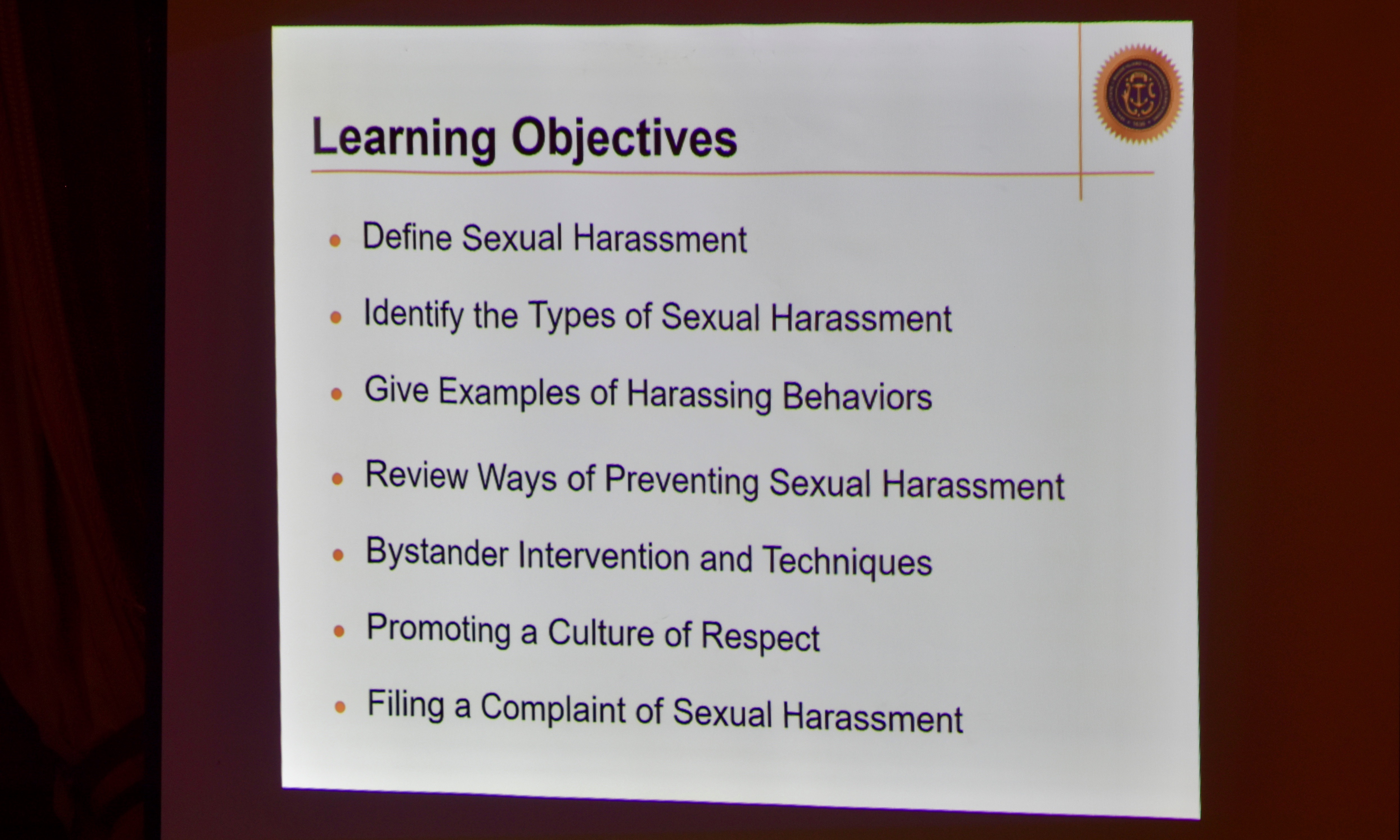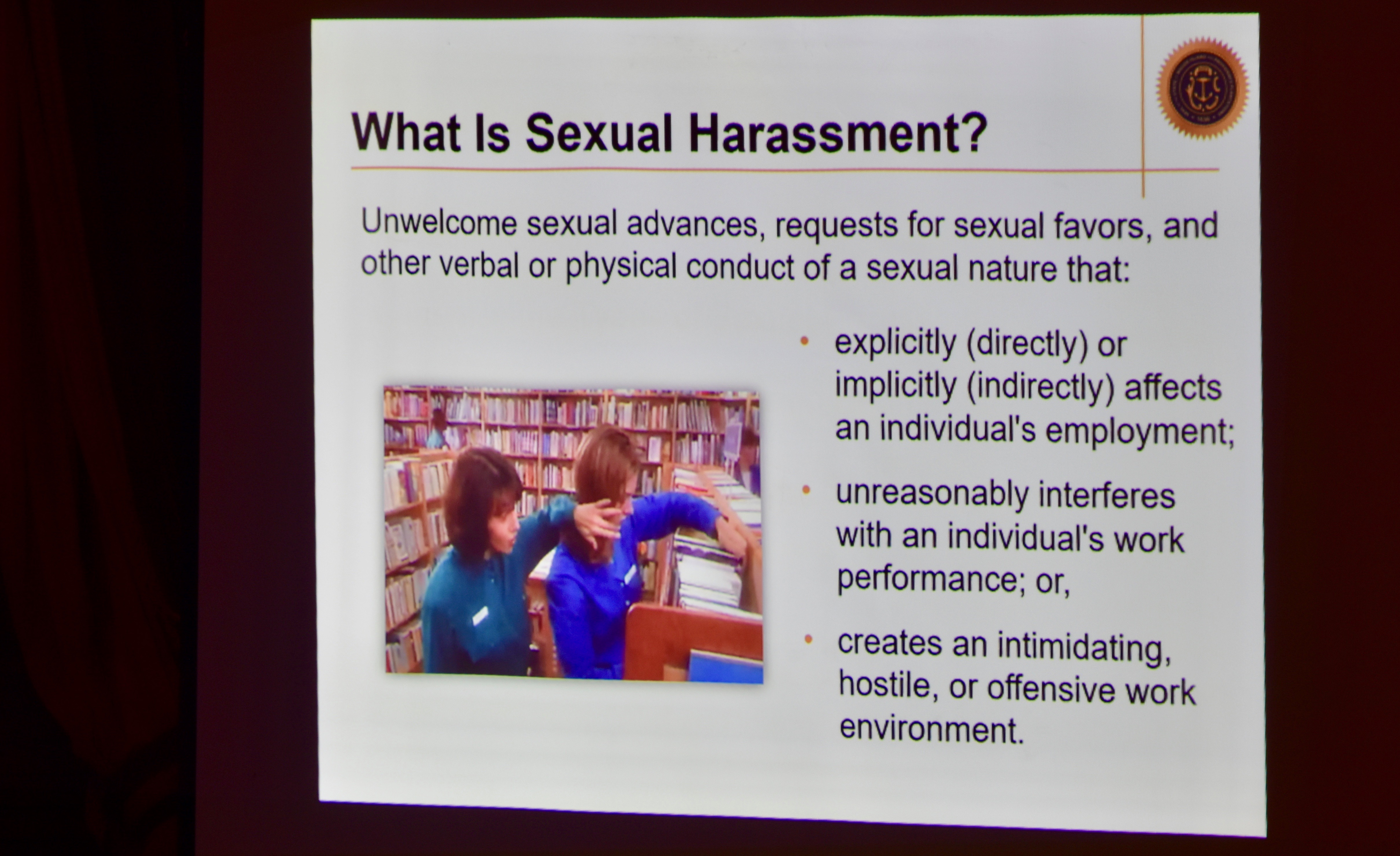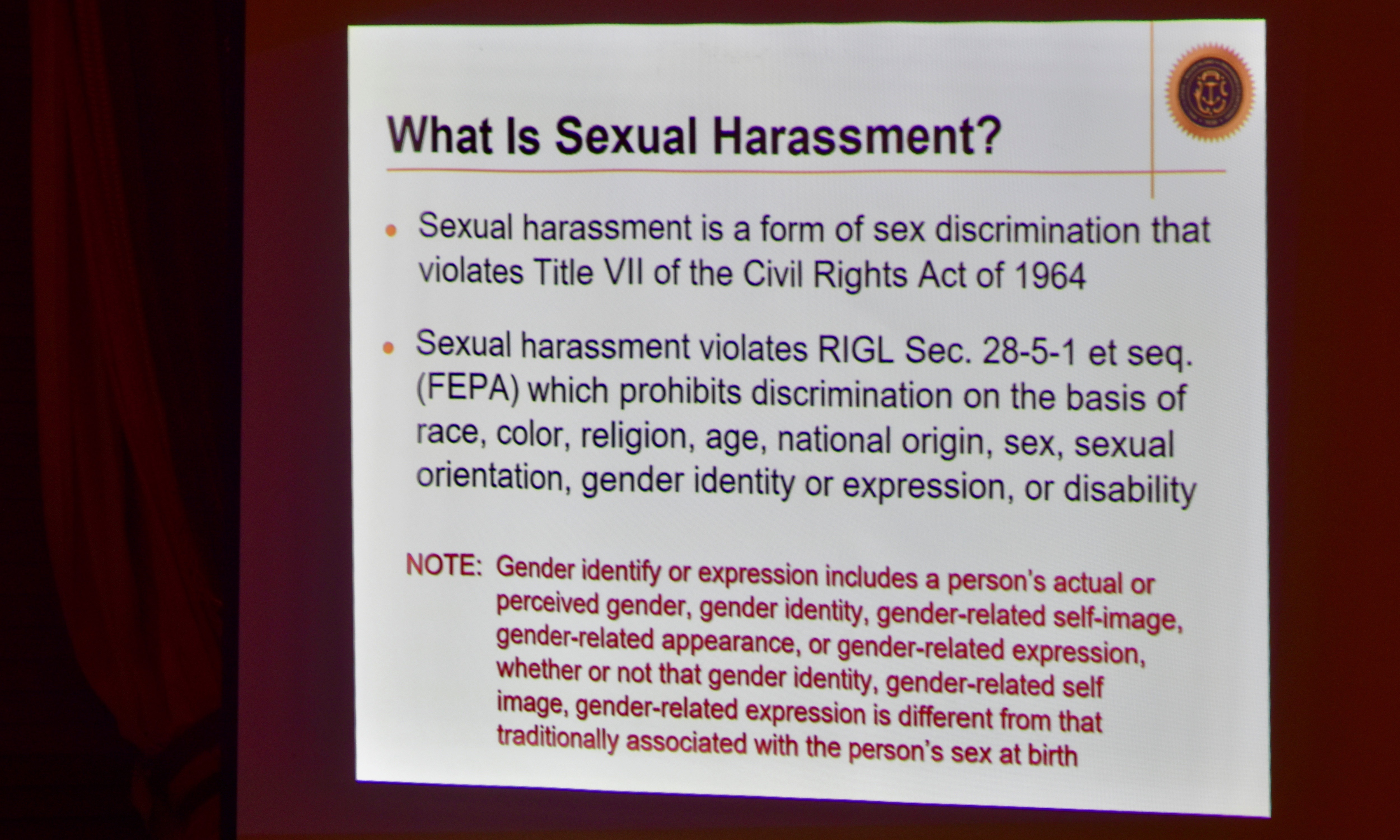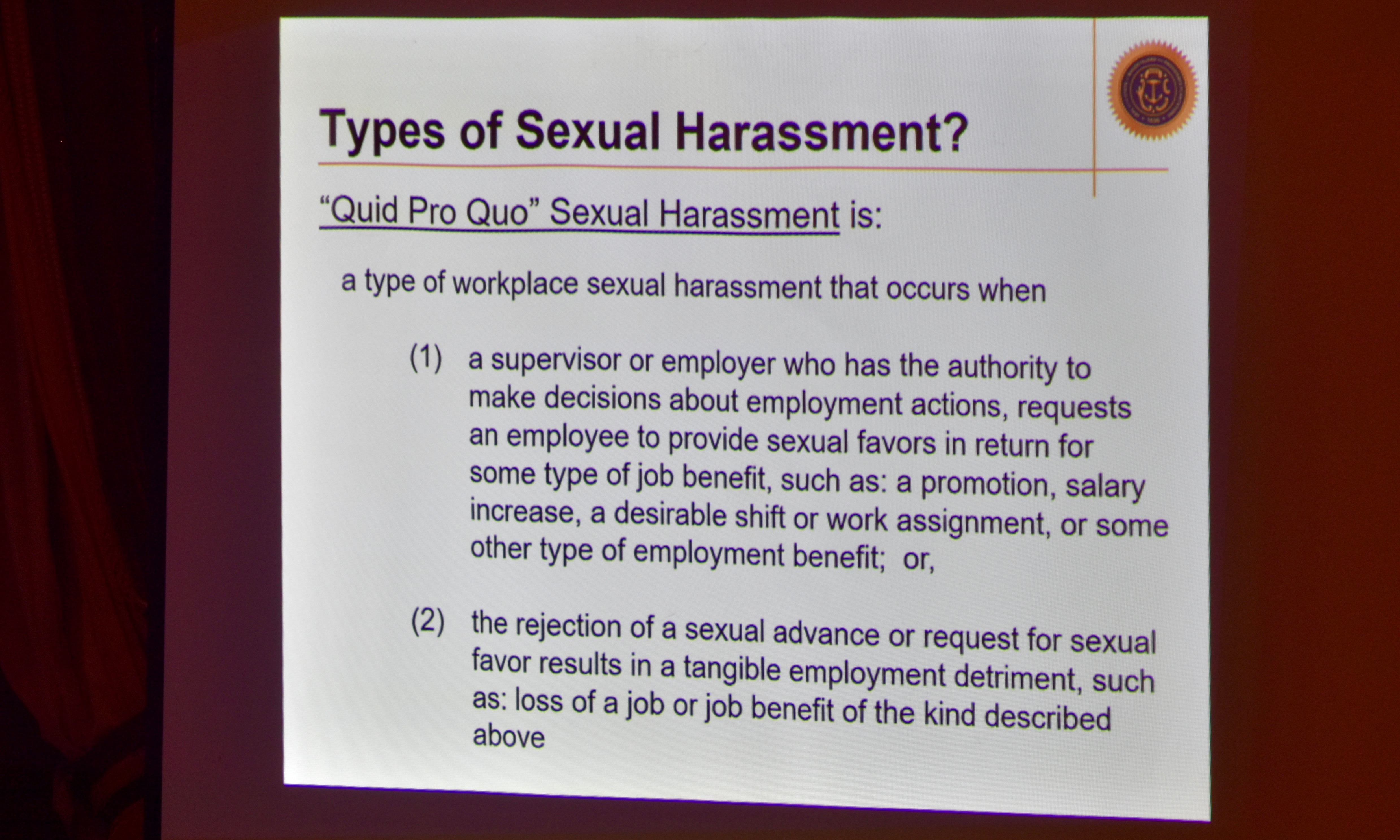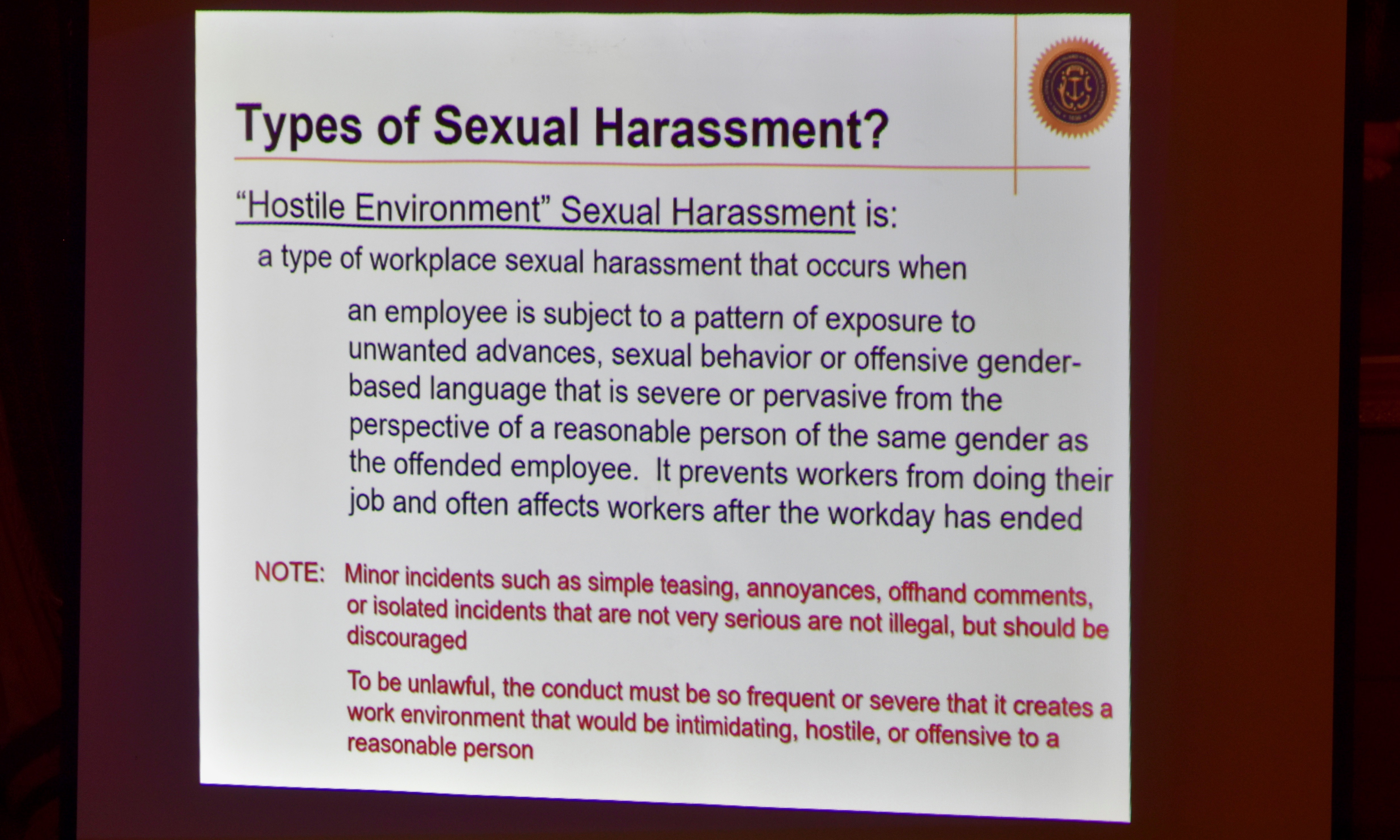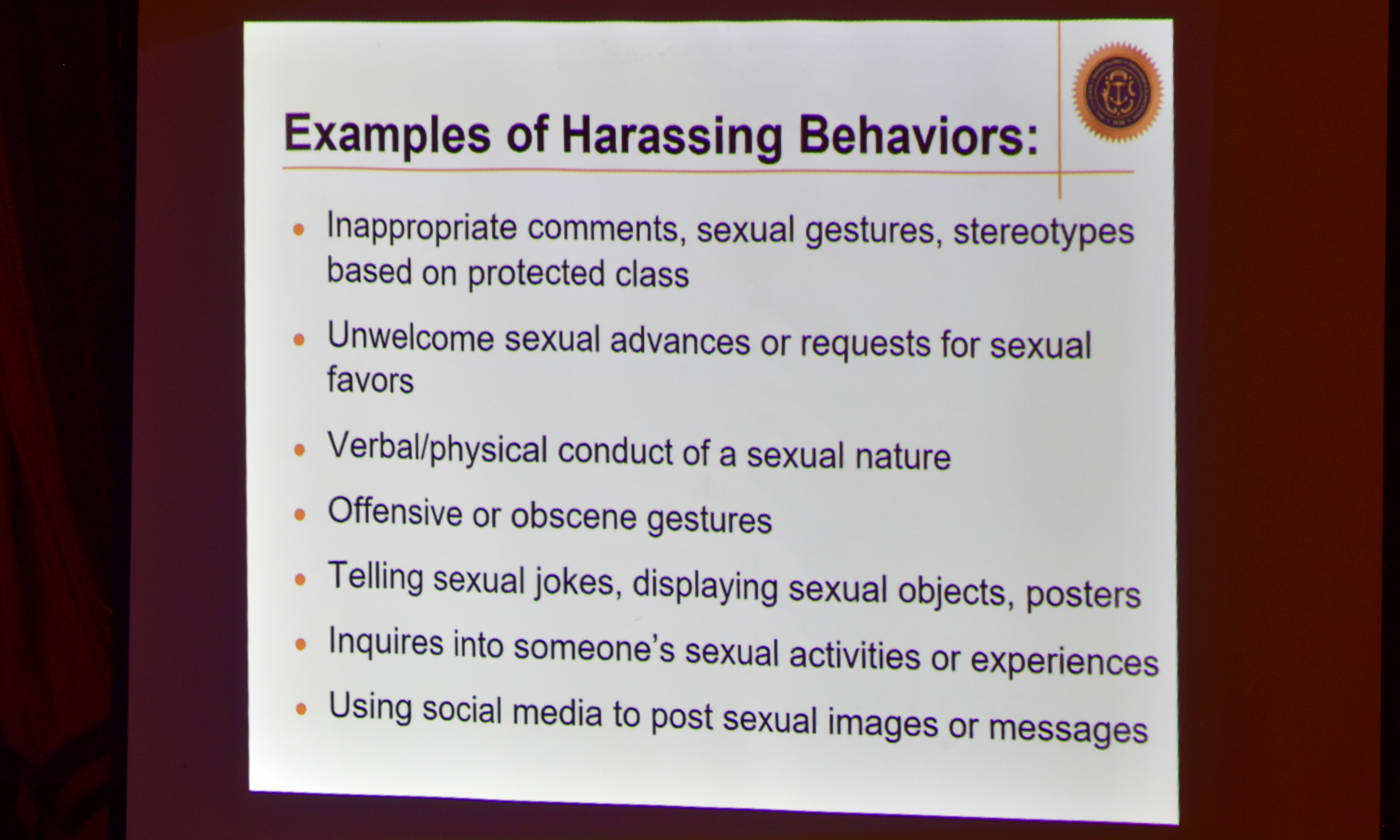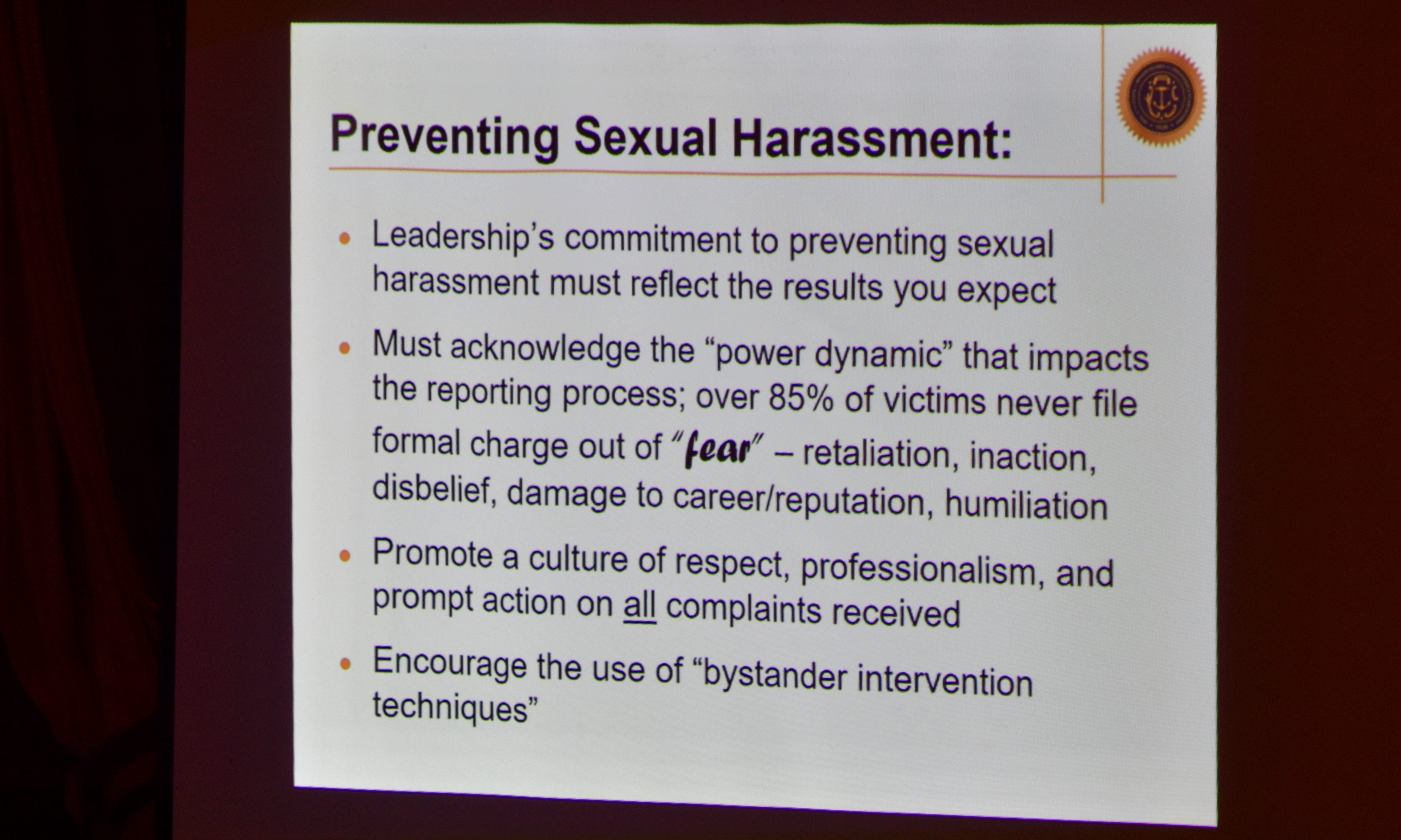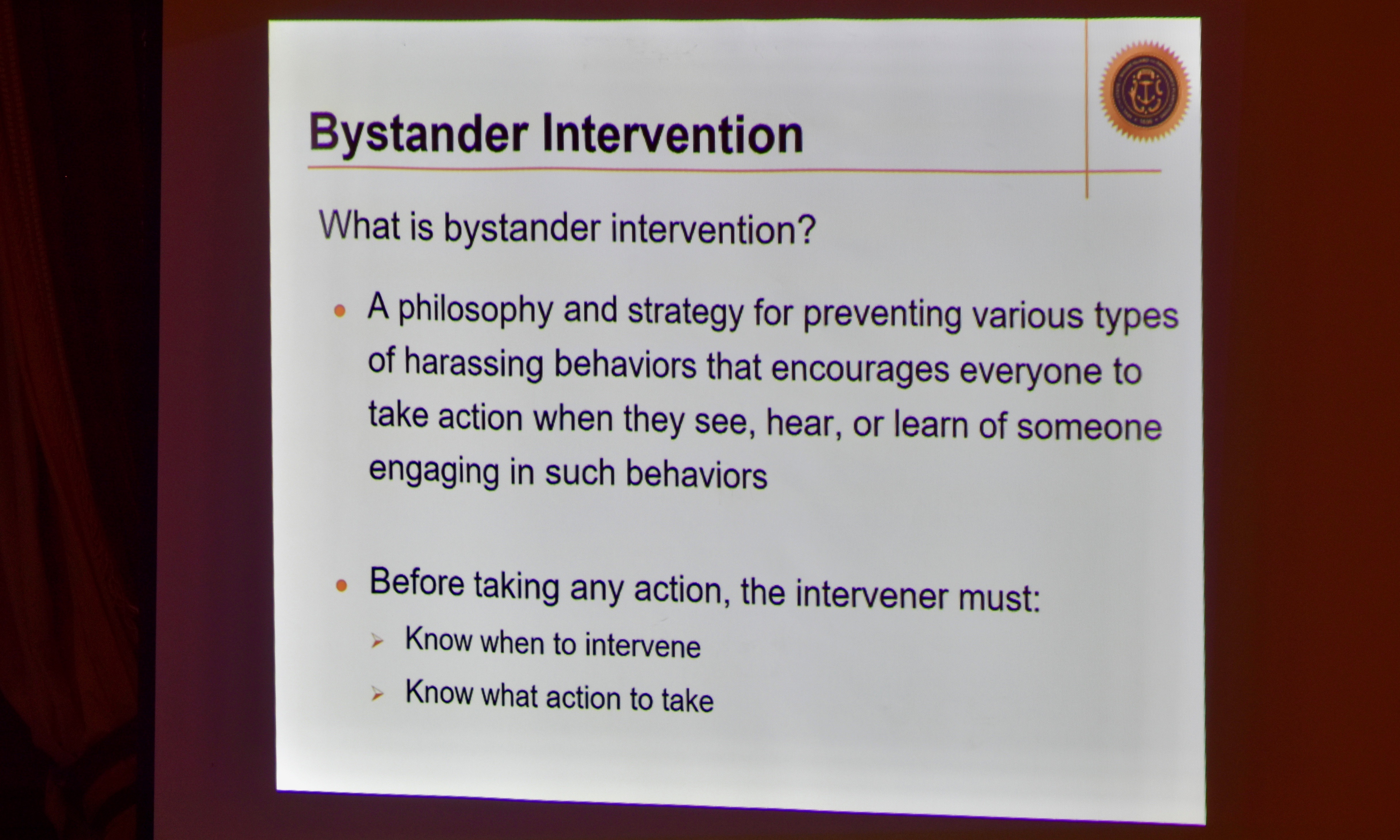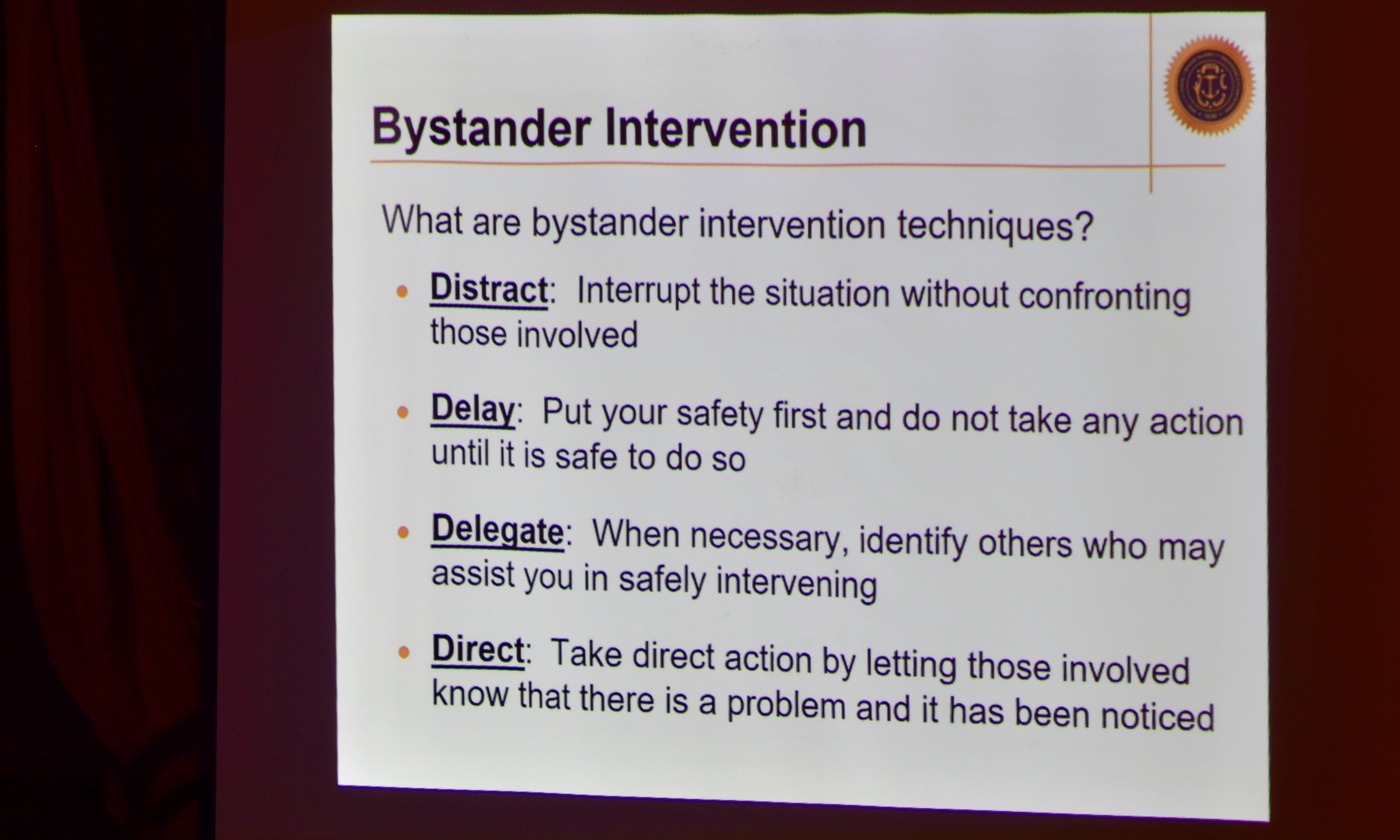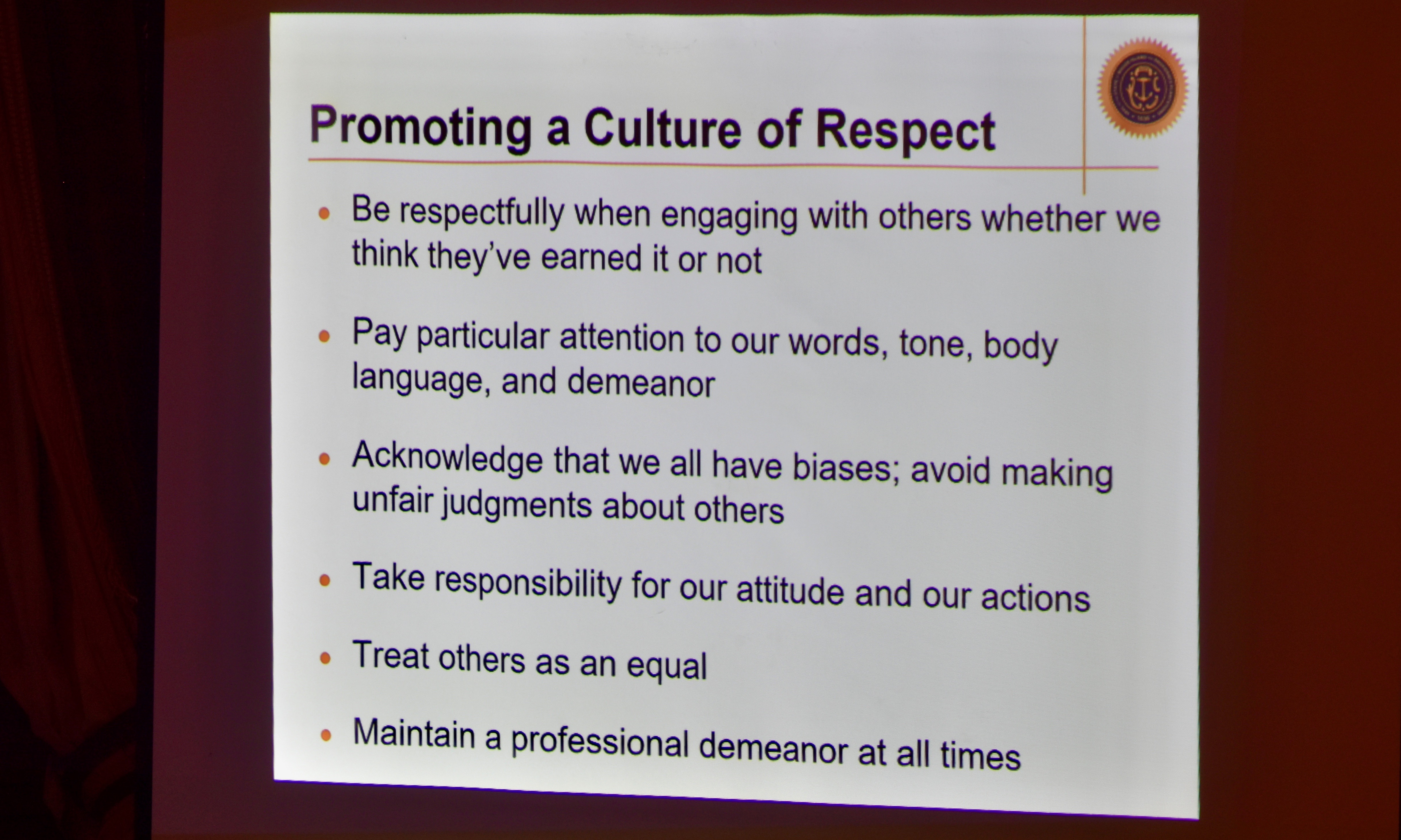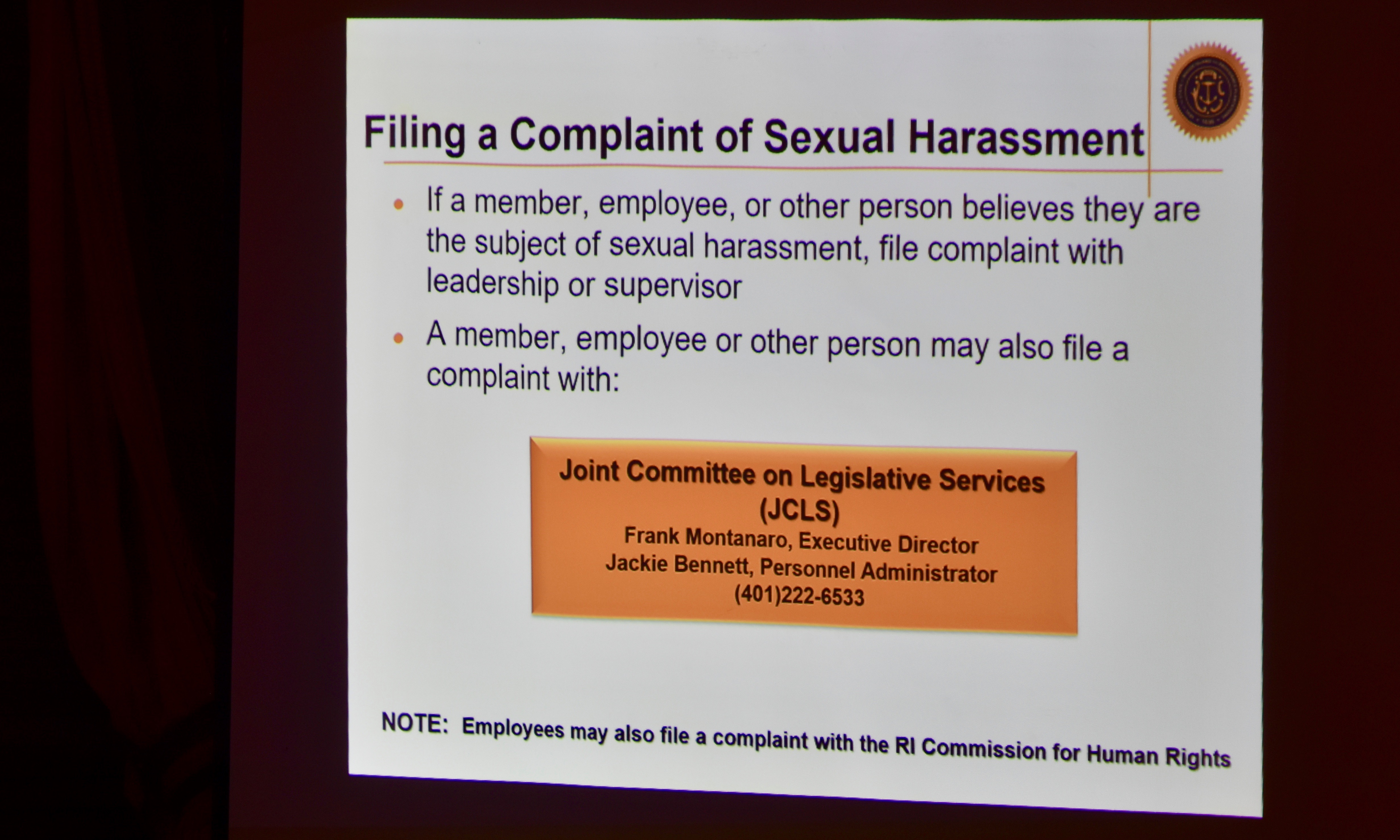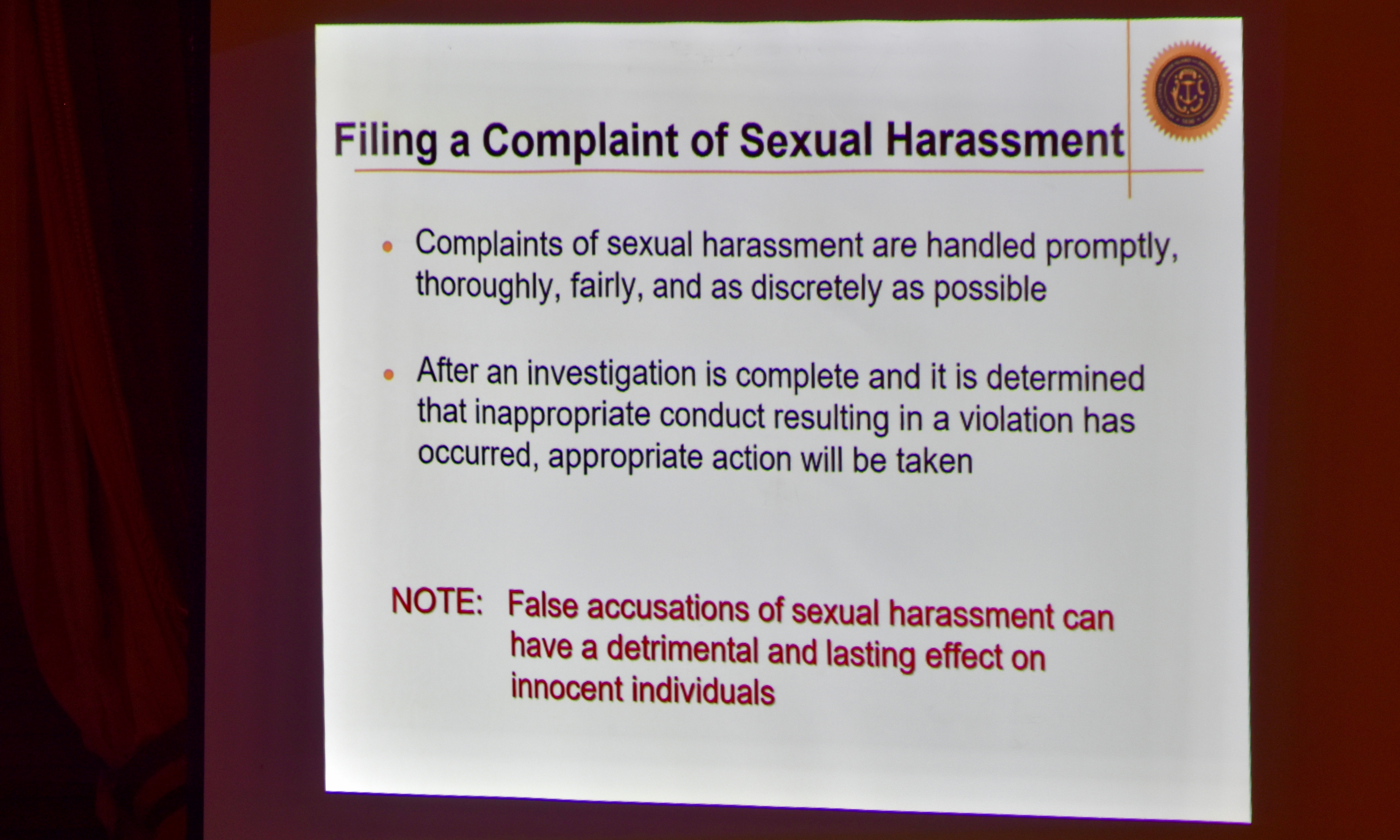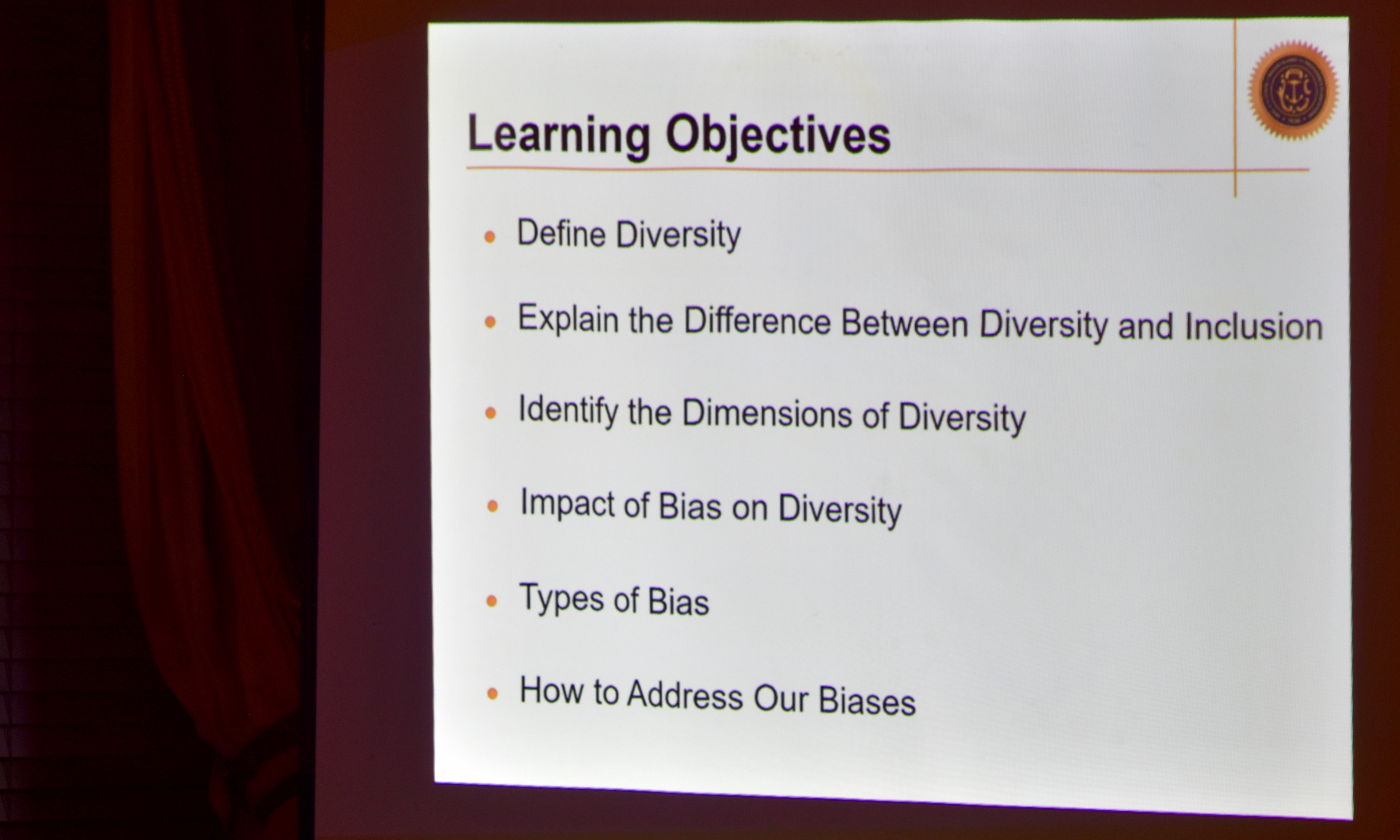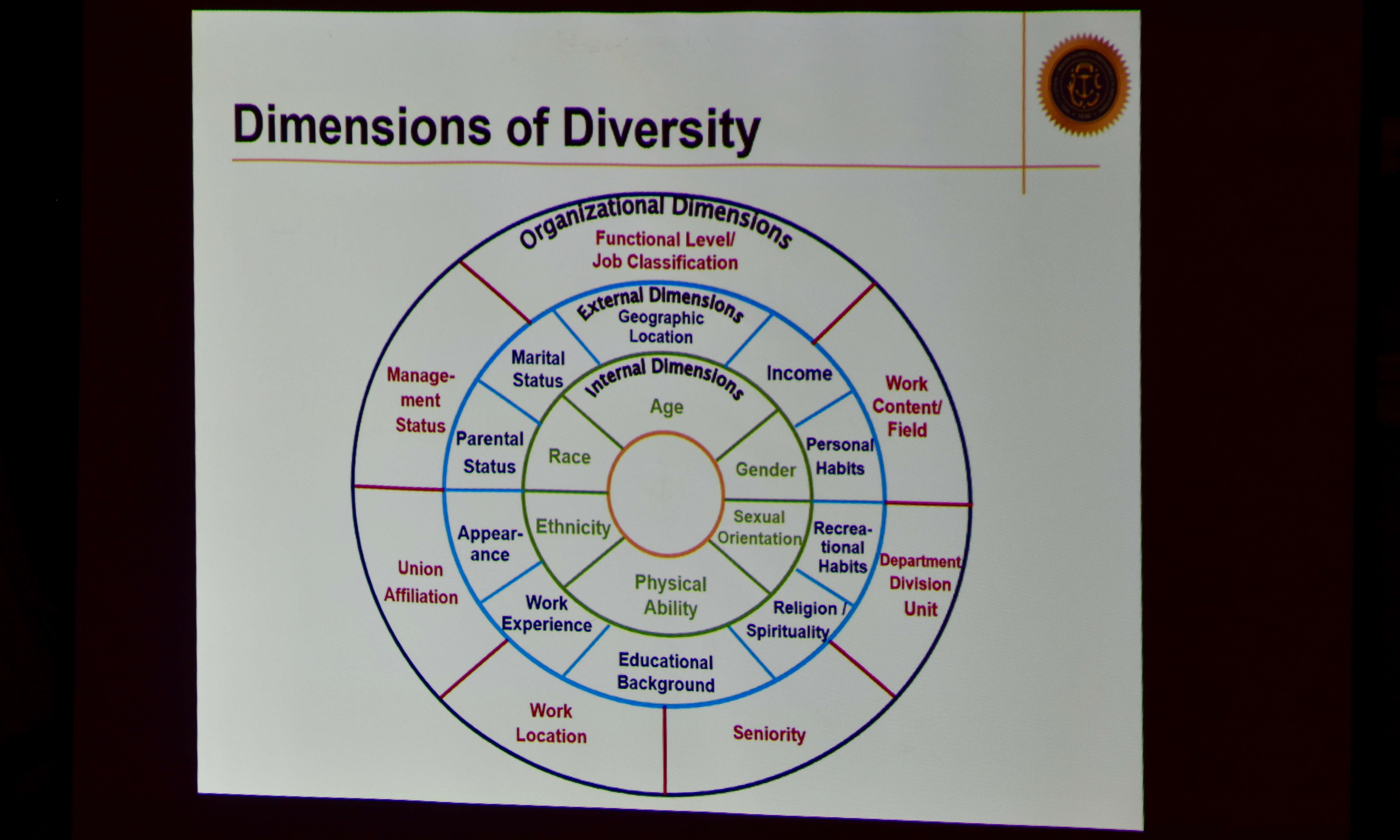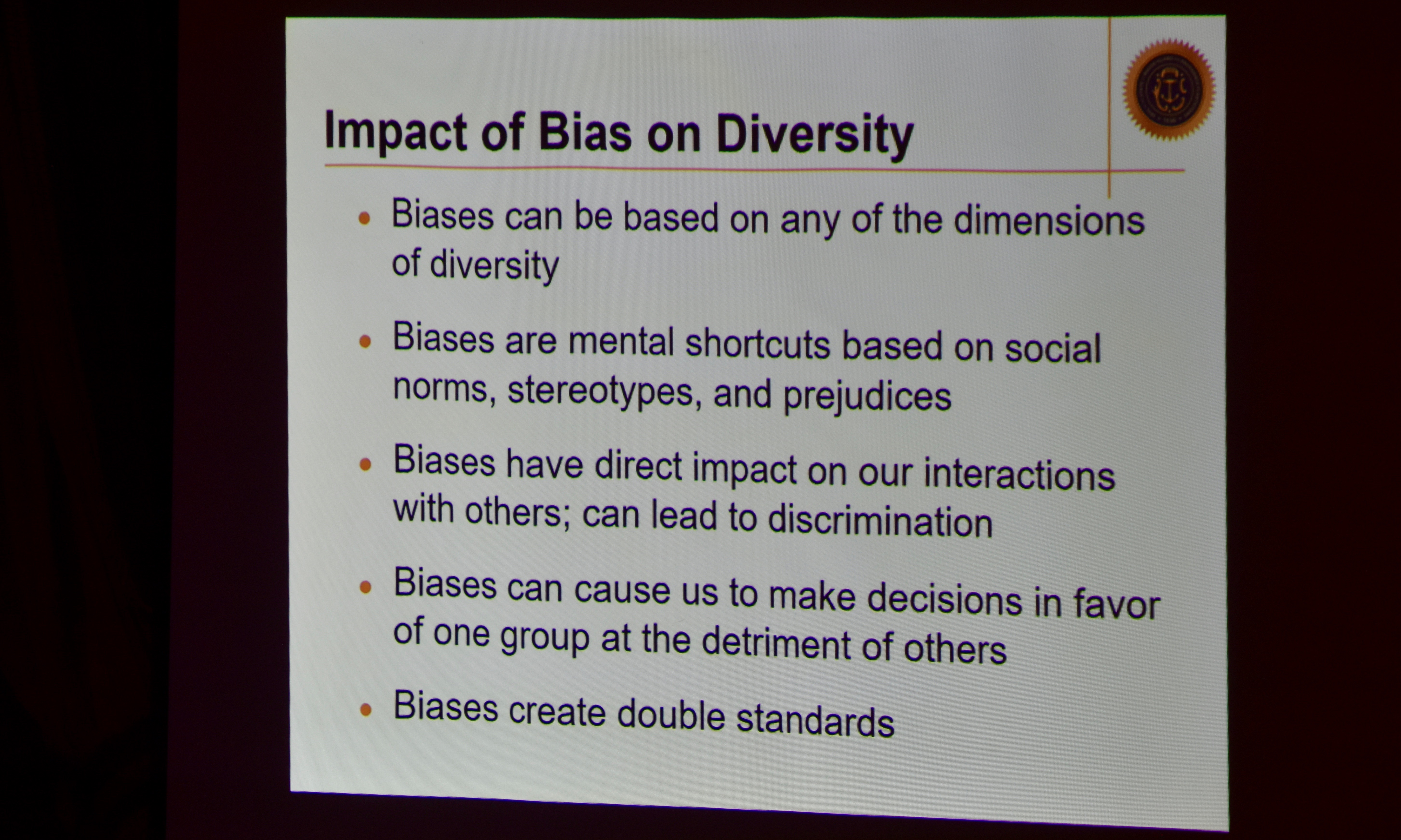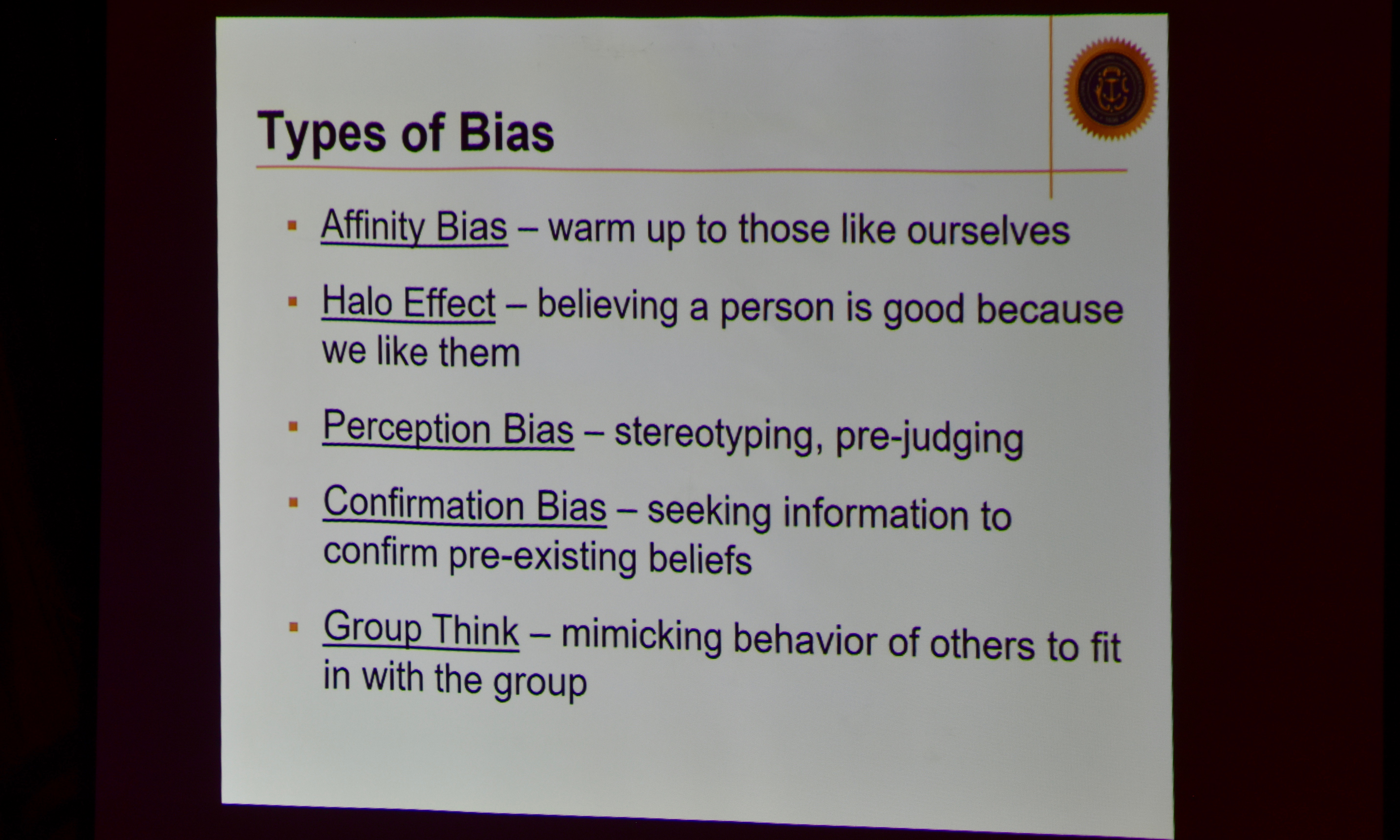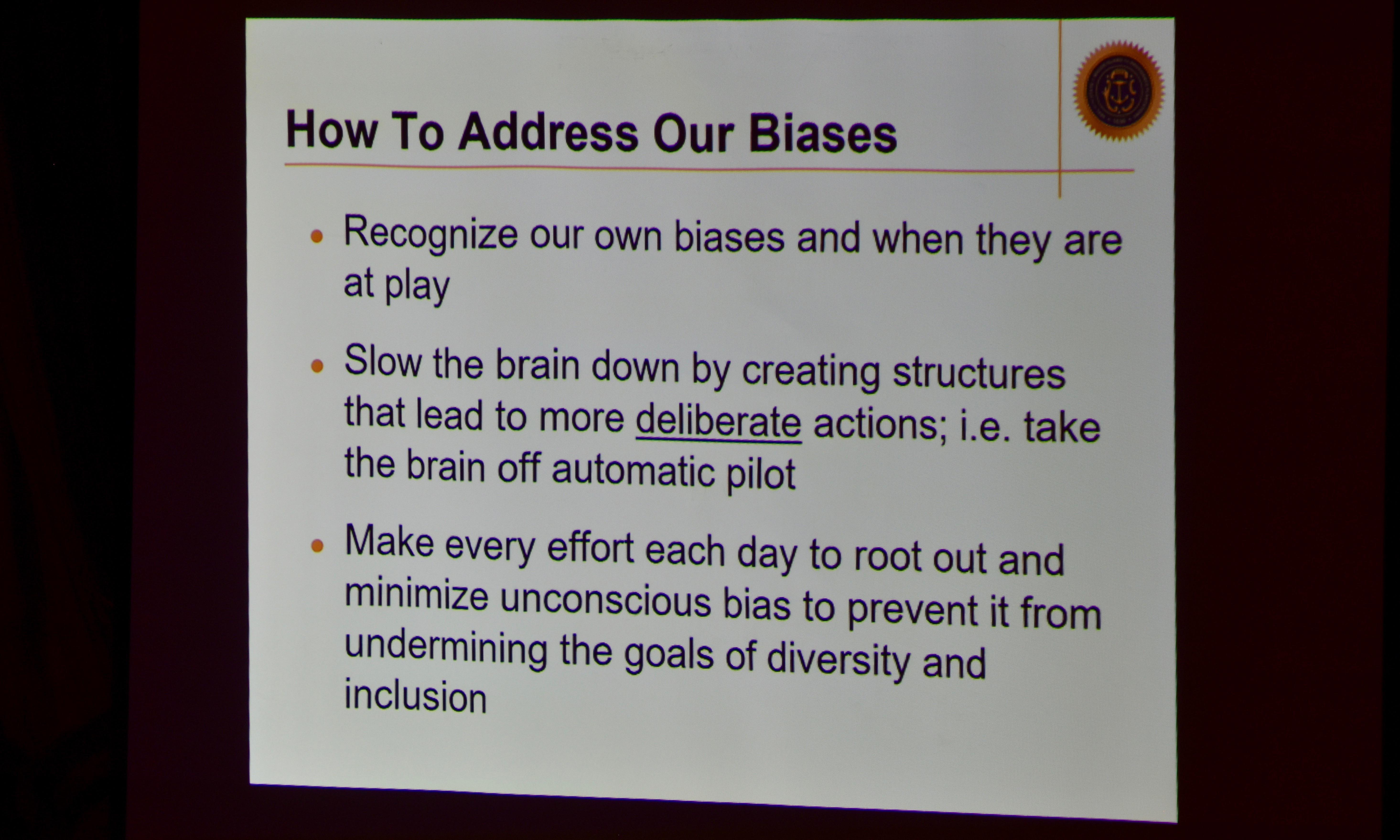Lessons from the House orientation on Discrimination, Sexual Harassment and Diversity need to be applied
On Wednesday the Rhode Island House of Representatives held its second annual orientation on Discrimination, Sexual Harassment and Diversity. The House Lounge was quite full, and I’d estimate that at least 70 out of the 75 elected Representatives were in attendance. There was no attendance taken and the orientation was not mandatory. As was the case last year, Cheryl Burrell,
January 10, 2019, 1:10 pm
By Steve Ahlquist

On Wednesday the Rhode Island House of Representatives held its second annual orientation on Discrimination, Sexual Harassment and Diversity. The House Lounge was quite full, and I’d estimate that at least 70 out of the 75 elected Representatives were in attendance. There was no attendance taken and the orientation was not mandatory.
As was the case last year, Cheryl Burrell, associate director of the Rhode Island Department of Administration Office of Diversity, Equity and Opportunity conducted the orientation.
The meeting started with a few words from Speaker of the House Nicholas Mattiello (Democrat, District 15, Cranston).
Here are some stray observations I made last night:
In a room full of legislators, many of whom are lawyers, you would expect a deep knowledge of these issues. Yet this same legislature, under the leadership of Mattiello, can’t seem to come up with a meaningful policy to handle sexual harassment in their own ranks.
The House Committee on Rules currently has a bill, H5037, that will amend the rules of the House to include a policy on dealing with issues of sexual harassment. The language in the bill is woefully incomplete according to experts from the National Women’s Law Center. They write, in written testimony presented to the House Committee on Rules, that any “entity charged with receiving, investigating and resolving complaints must be independent and impartial.”
Yet 5037 is unclear as to whether the newly named “Office of Compliance” will be independent or not.
The National Women’s Law Center writes that “victims should not be forced into silence,” yet 5037 states that, “No person involved shall discuss the subject outside the investigation.” Non disclosure requirements silences victims, and could be dangerous to their health and safety.
Further, though the rules reforms in 5037 are entitled “Sexual Harassment and Discrimination Prohibited” the rules actually only address sexual harassment and none of the other forms of discrimination covered by Burrell in her short but reasonably comprehensive presentation.
Here’s something that I noticed. Below, in the slide entitled “Case Scenario #3,” there is a rather egregious example of sexual harassment and predation presented. Note that the victims are described as “Mexican workers” and that the scenario mentions that the workers “mustered the courage” to report the harassment and exploitation they were facing.
After reading the slide, one Representative exclaimed, “They should call the police!”
While it is true that the harassment these workers faced was criminal in nature, why did it occur to no one in the room that some “Mexican workers” might be afraid to call the police because of their immigration status or even police perception of their immigration status? Immigration status can trigger bias in law enforcement and others just as easily as any number of other individual characteristics.
Laws enacted by the General Assembly, such as providing driver’s licenses for undocumented workers, could go a long way towards alleviating some of the discrimination and harassment undocumented people in our state face every day.
Shout out to Representative Moira Walsh (Democrat, District 3, Providence) for asking pointed questions that often probed the issues the House is currently facing in coming to grips with the issues of sexual harassment.

It occurs to me that a comprehensive and enforceable policy on Discrimination, Sexual Harassment and Diversity could have a positive effect on our legislature. In the real world, our employment is often bound by a code of conduct that respects the legal systems built to protect people from harassment and discrimination. When legislators feel they are somehow above such rules, or that their good nature precludes the need for such rules, it leads to feelings of superiority and class divisions, as if elected officials are better than others, and not actually public servants bound by the same norms and laws as the rest of us.

For coverage of last’s year’s orientation, see Jacqueline Tempera‘s here:
R.I. lawmakers take sexual harassment training
Here are most of the slides presented to the House members by Burrell:
Here’s the full language from H5037 covering sexual harassment:
Sexual Harassment and Discrimination Prohibited
46(a) The House of Representatives is committed to creating and maintaining a work environment in which all members and employees are treated with respect and are free from sexual harassment and discrimination.
The House fully supports the protection and safeguarding of the rights and opportunities of all people to seek, obtain and hold employment without being subjected to sexual harassment of any kind in the work place.
The House acknowledges that the question of whether a particular action or incident is of a purely personal or social nature, without a discriminatory employment affect, requires an extensive determination based on all facts in each case. The House further recognizes that false accusations of sexual harassment can have serious effects on innocent individuals.
(b) Sexual harassment is a violation of Title VII of the Civil Rights Act of 1964. It is against the policy of the House for any person involved in the business of the House to sexually harass another person involved in the business of the House.
(c) All persons involved in the business of the House, whether a member, employee or other person involved in the work of the House are expected to comply with this rule and take appropriate measures to ensure that the prohibited conduct does not occur.
Any person involved in the business of the House, whether a member, employee or other person involved in the work of the House who believes that he or she has been the subject of sexual harassment should report the alleged act immediately to his or her supervisor or directly to the Office of Compliance.
All complaints shall be handled in a timely and confidential manner by the Office of Compliance. In no event shall information concerning a complaint be released to anyone who is not involved with the investigation. No person involved shall discuss the subject outside the investigation. The purpose of this provision is to protect the confidentiality of the person who files a complaint, to encourage the reporting of any incidents of sexual harassment and to protect the reputation of any person who may be wrongfully accused.
If the investigation reveals that the complaint is valid, prompt attention and disciplinary action designed to immediately stop the harassment and to prevent its recurrence shall be taken.
The form of any disciplinary action for a member of the House shall be in accordance with any recommendation and findings of the Committee on Conduct and a two-thirds vote of the House and shall include but not be limited to loss of leadership and/or committee chair position, reprimand, censure, or expulsion as permitted by the Article 6, Section 7 of the Rhode Island Constitution, or any other action deemed necessary.
Uprise RI is entirely supported by donations and advertising. Every little bit helps:
Become a Patron!





